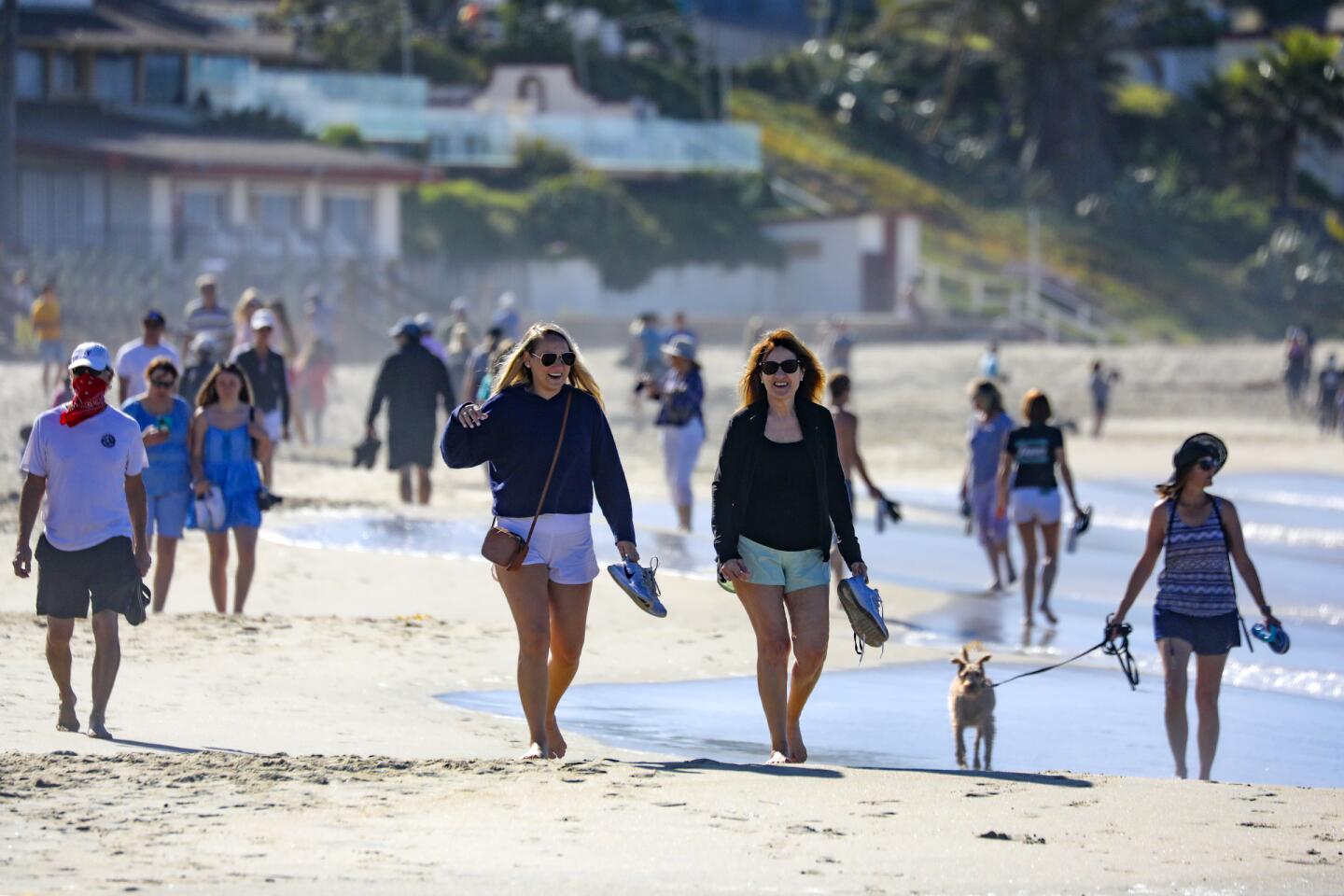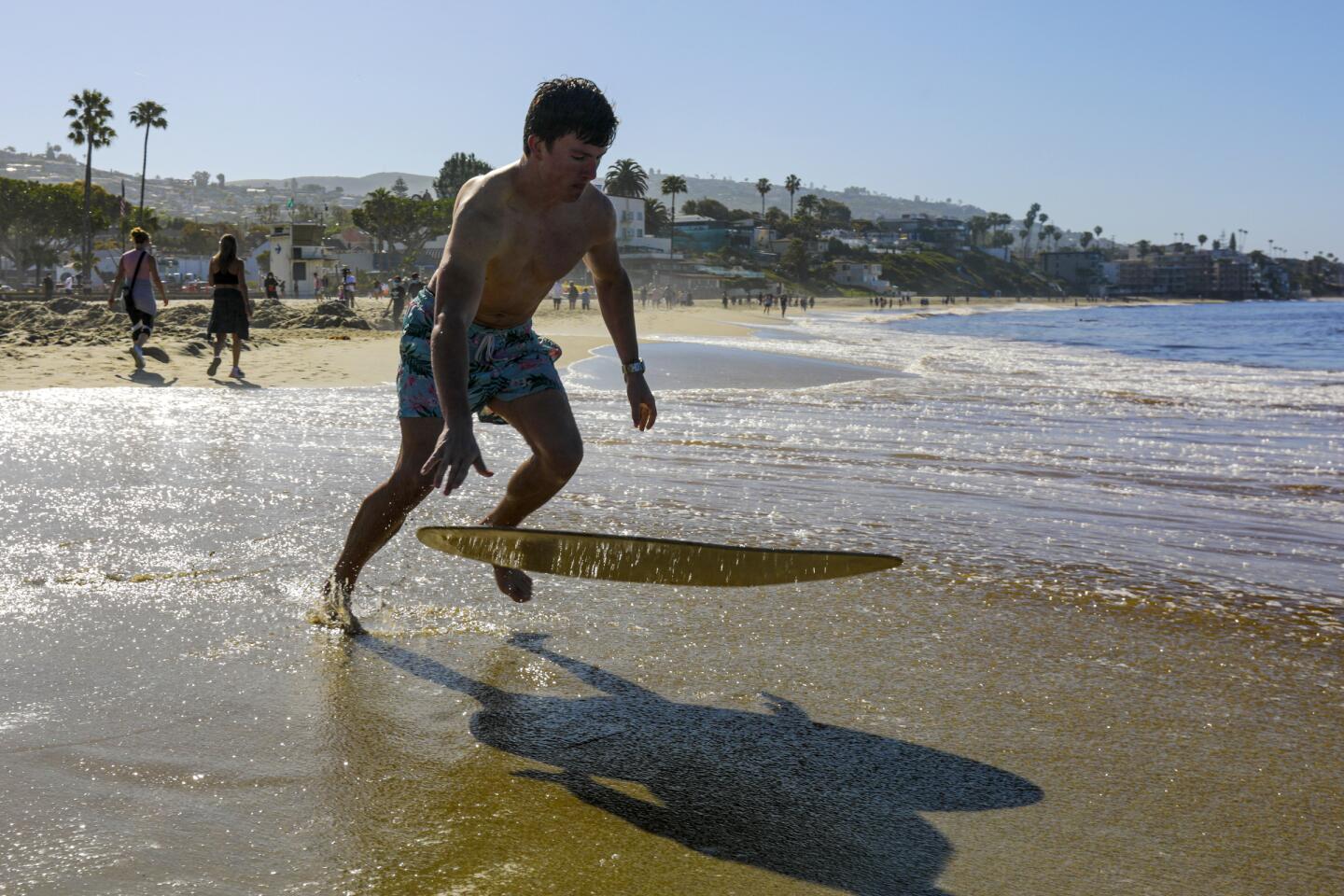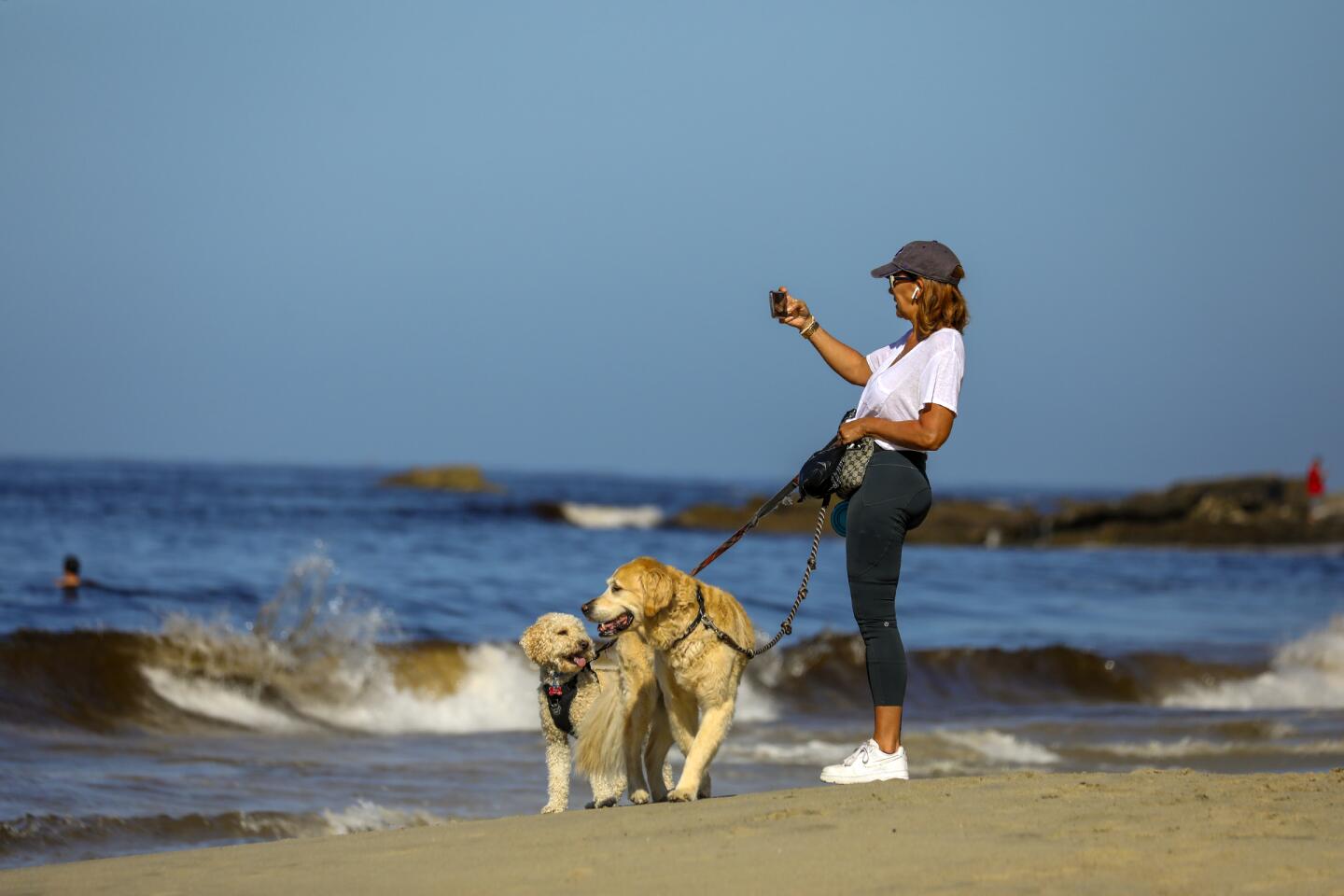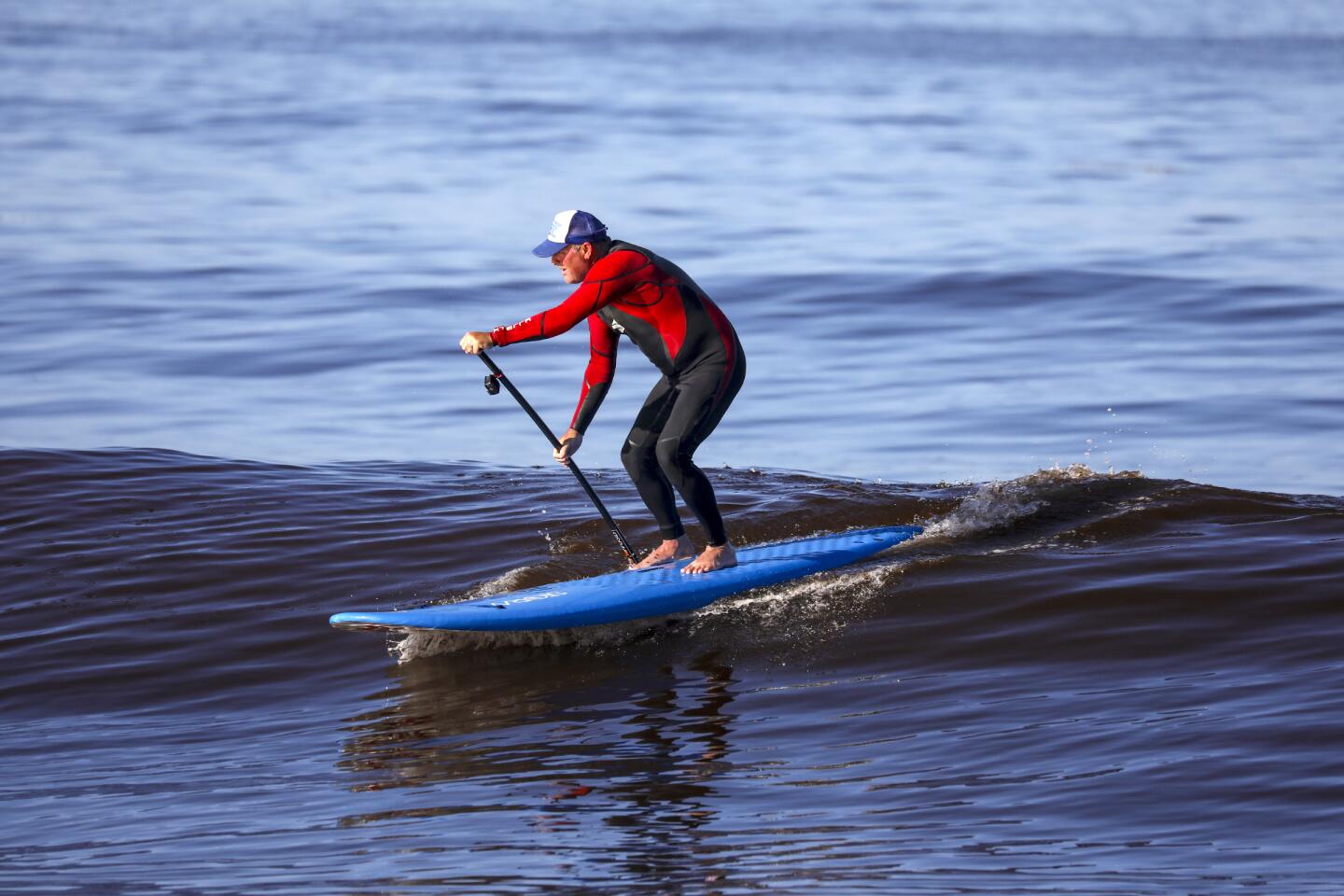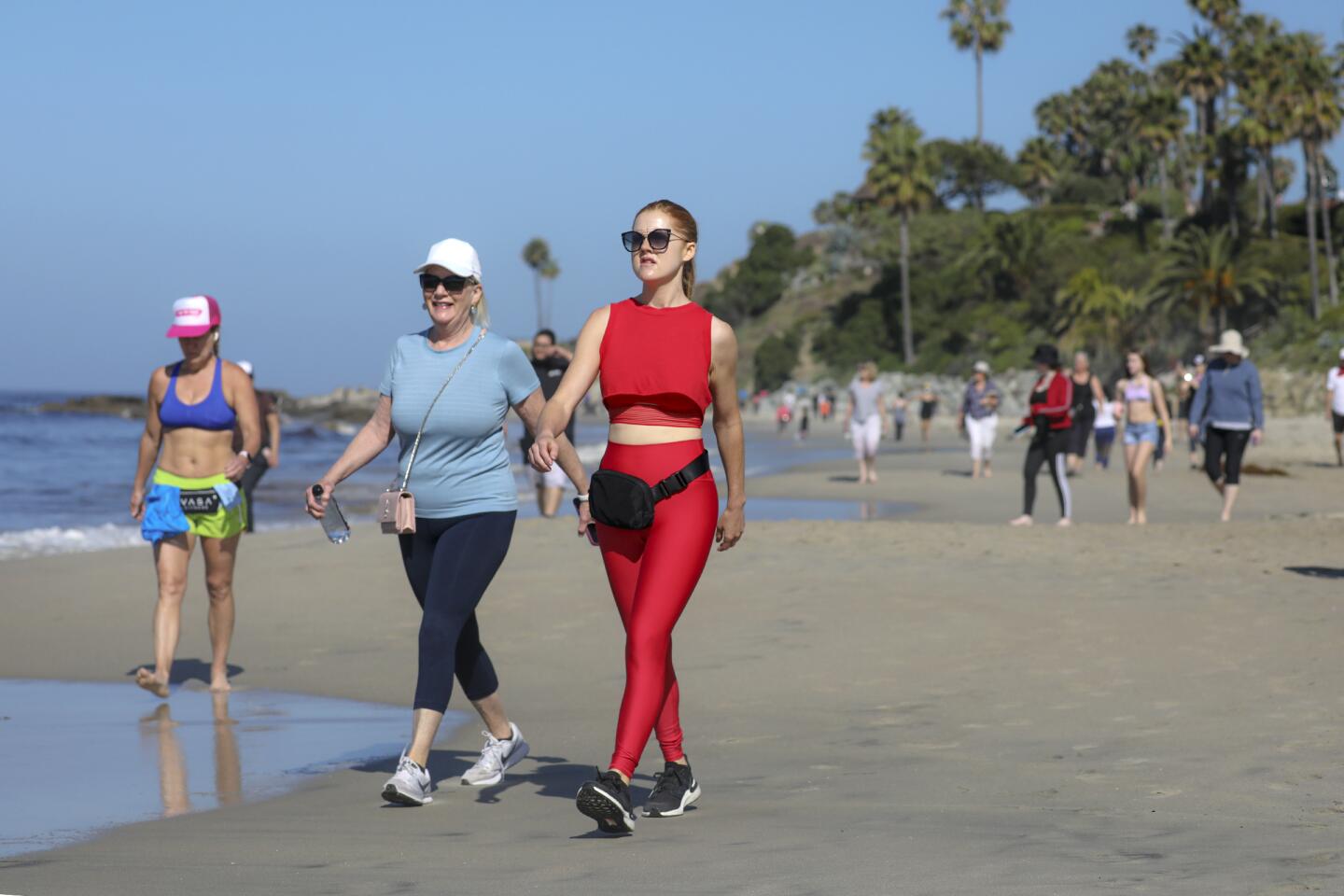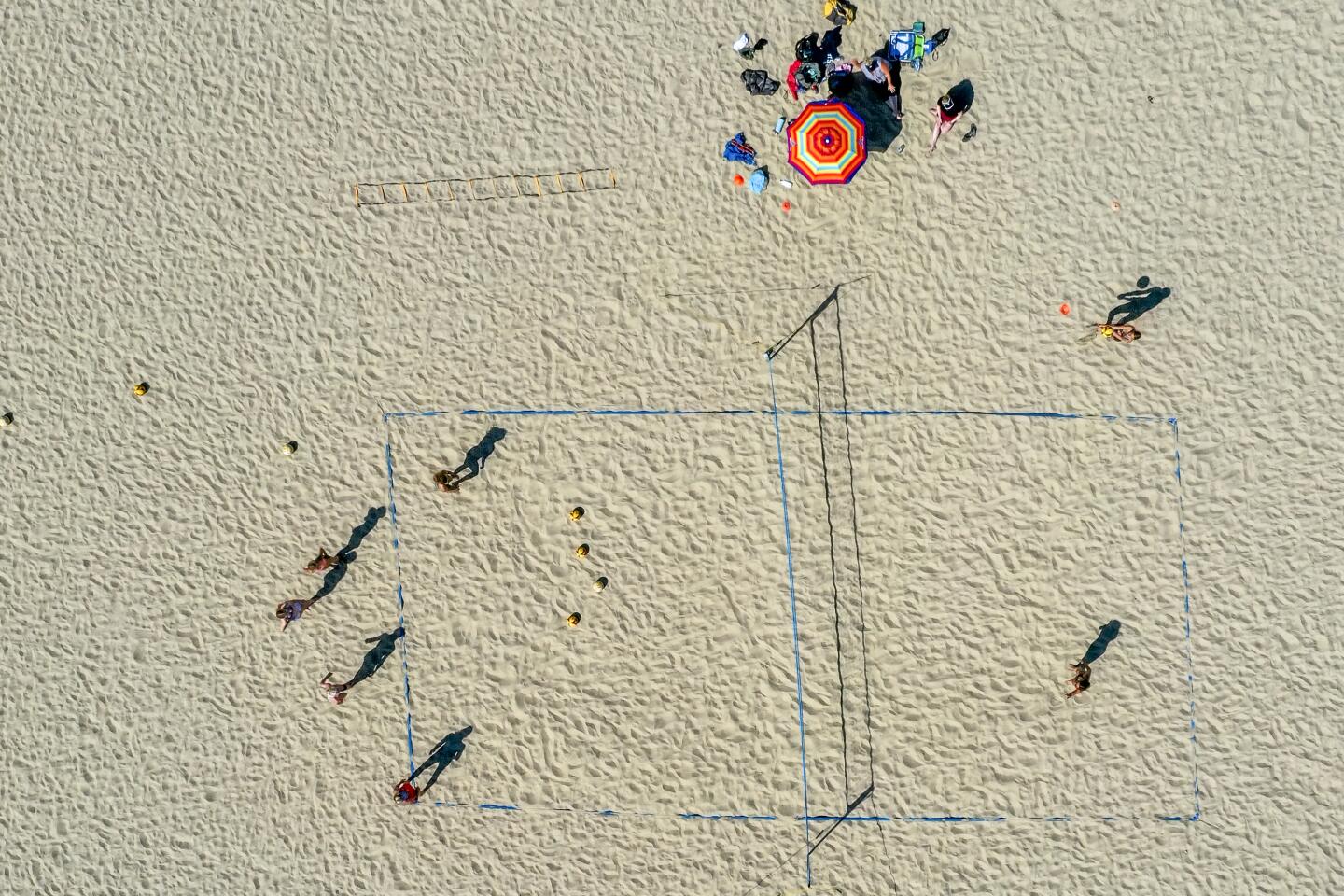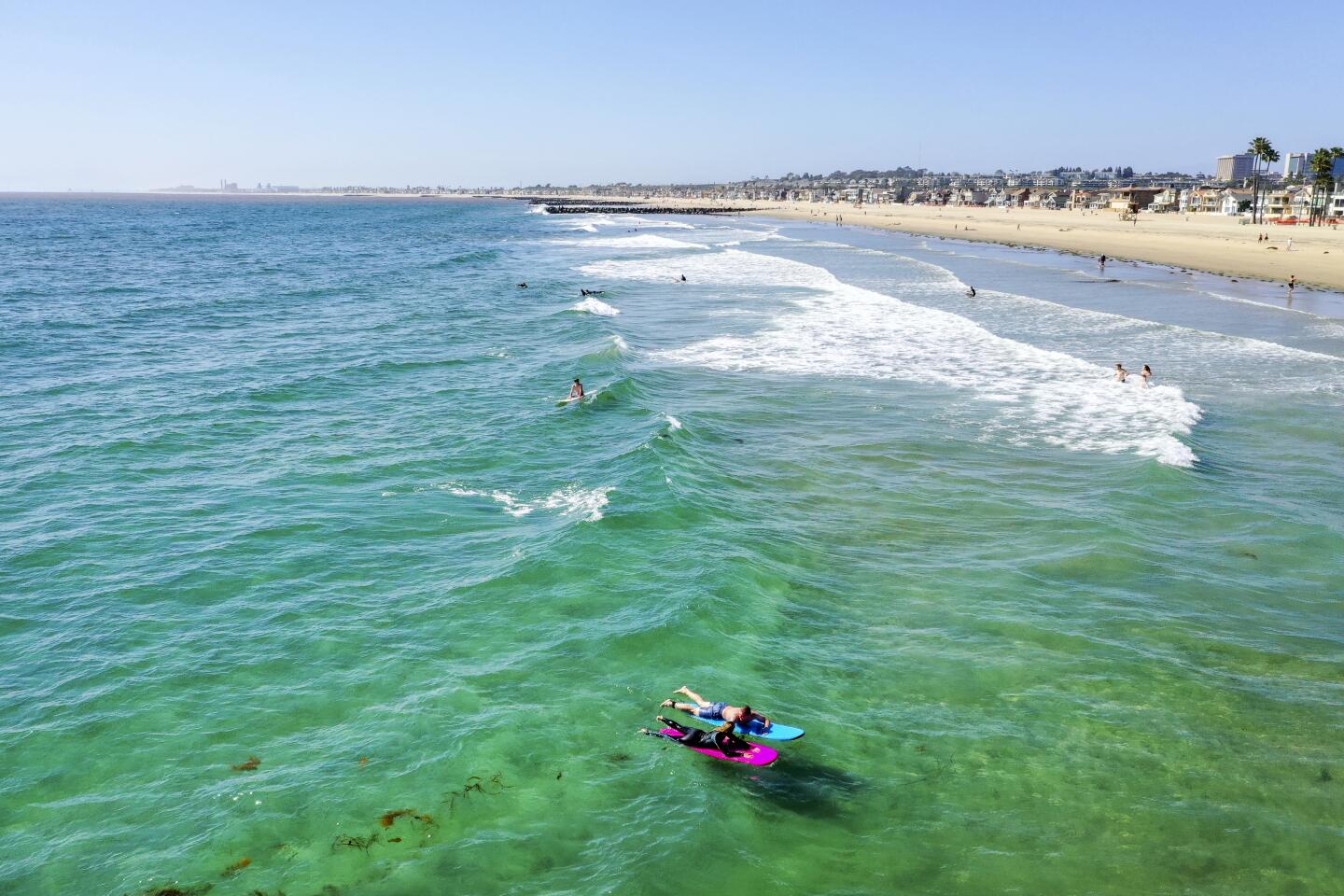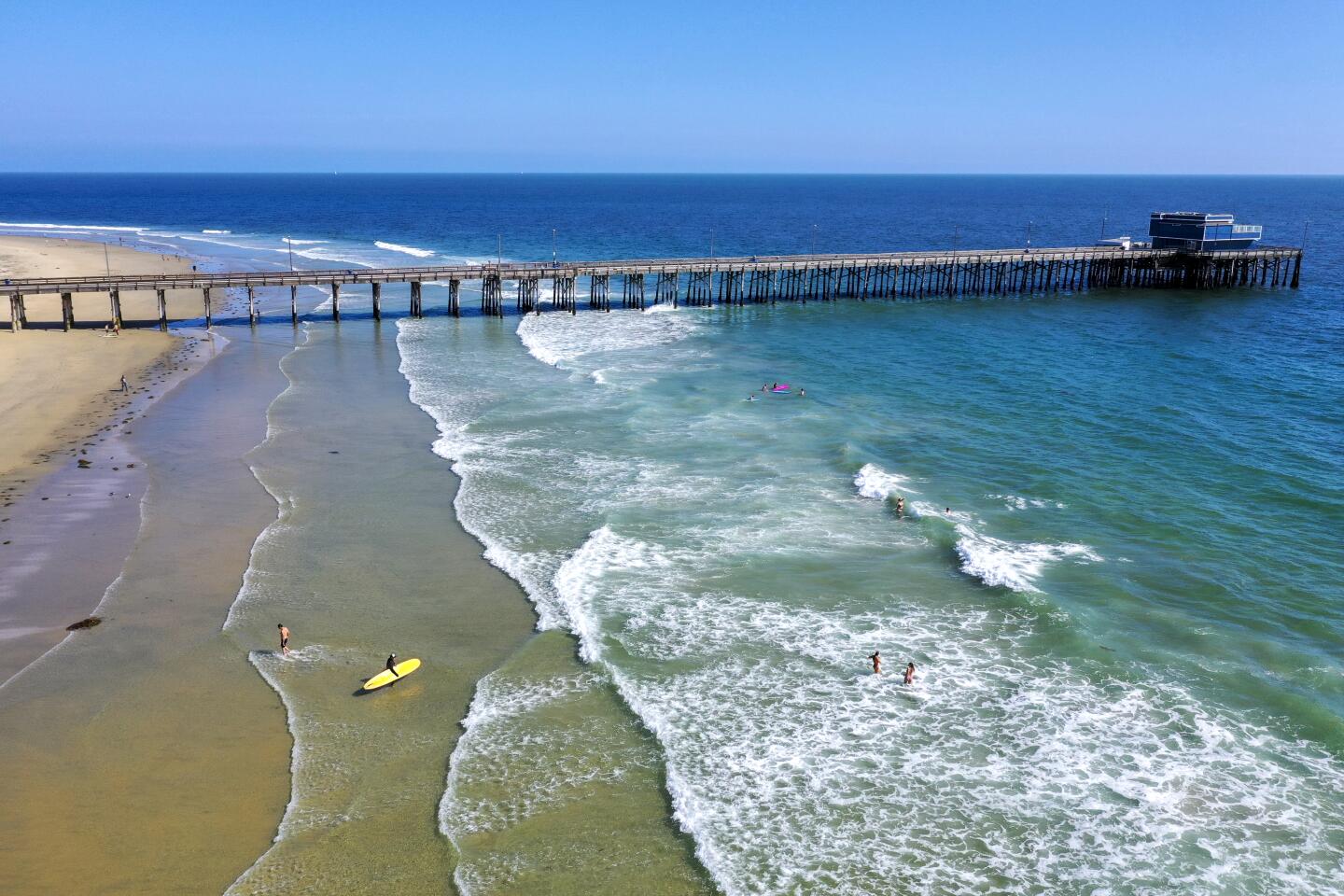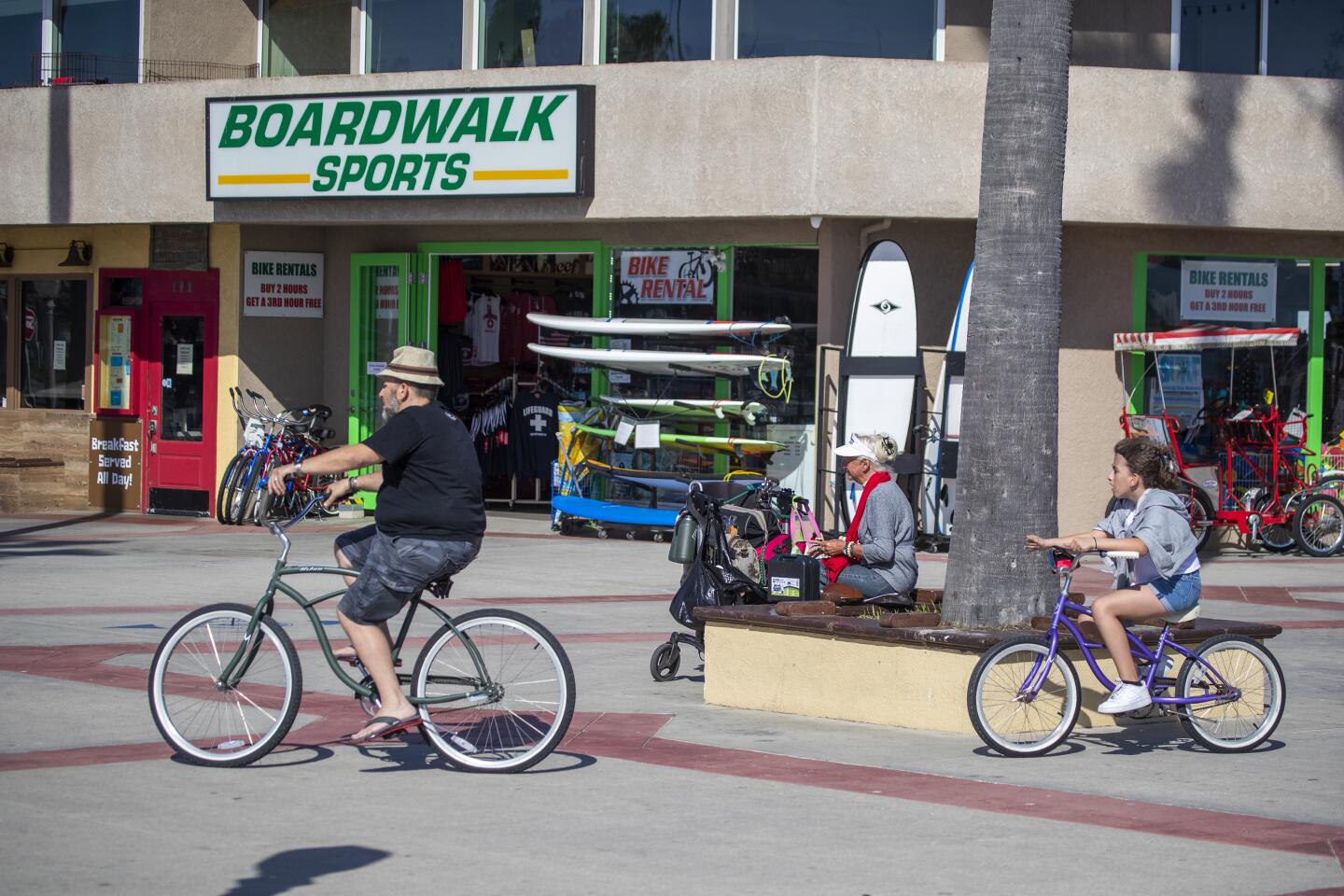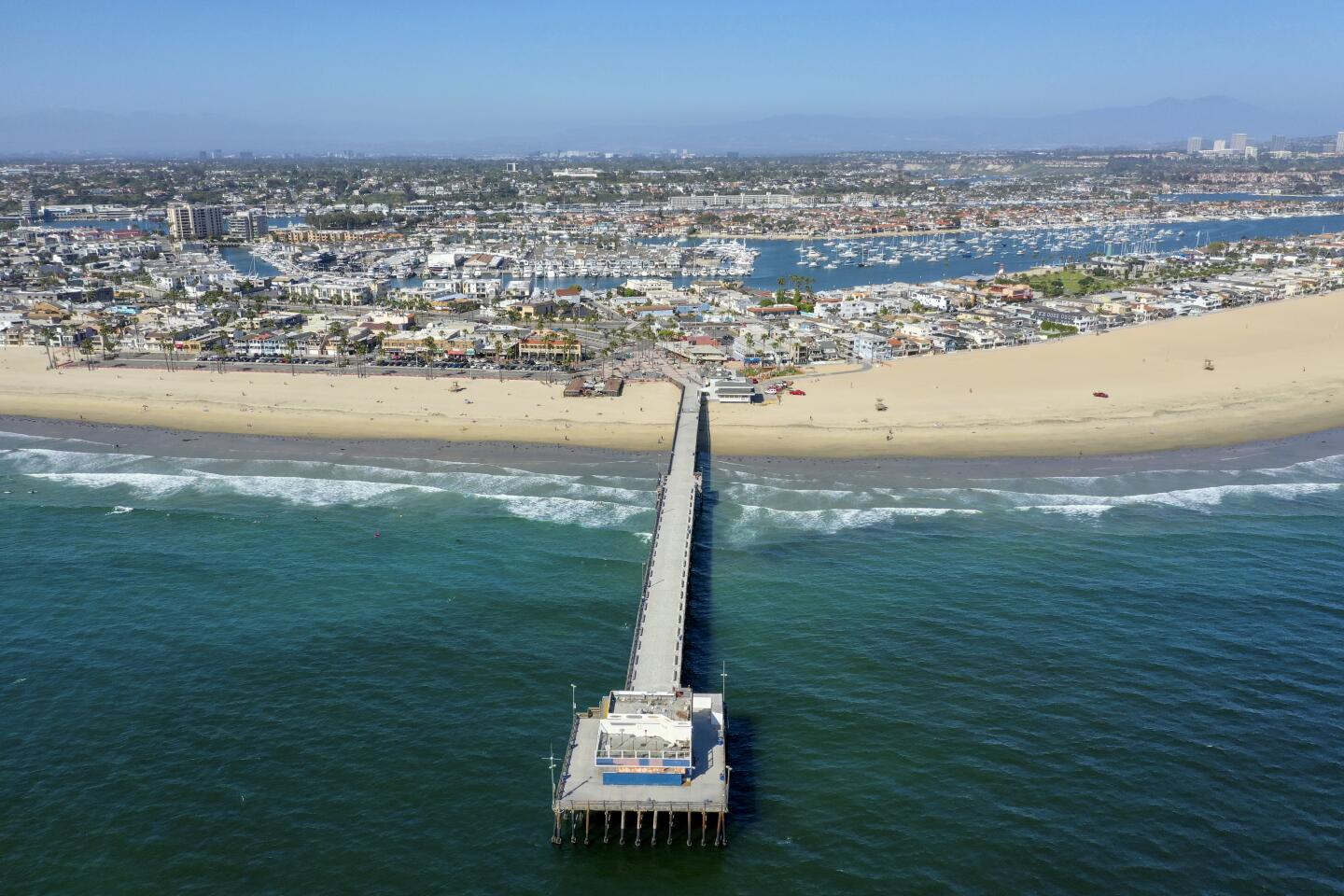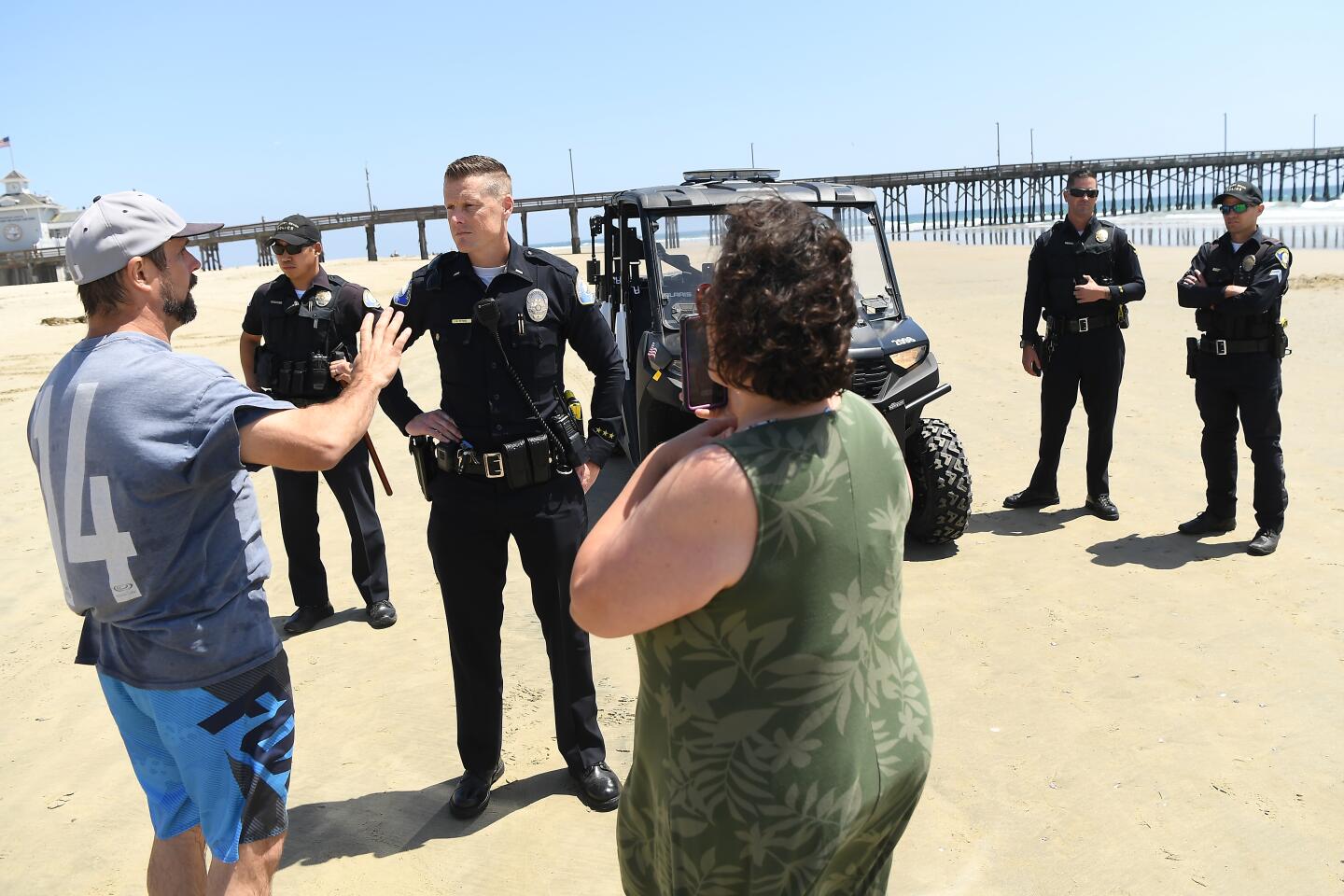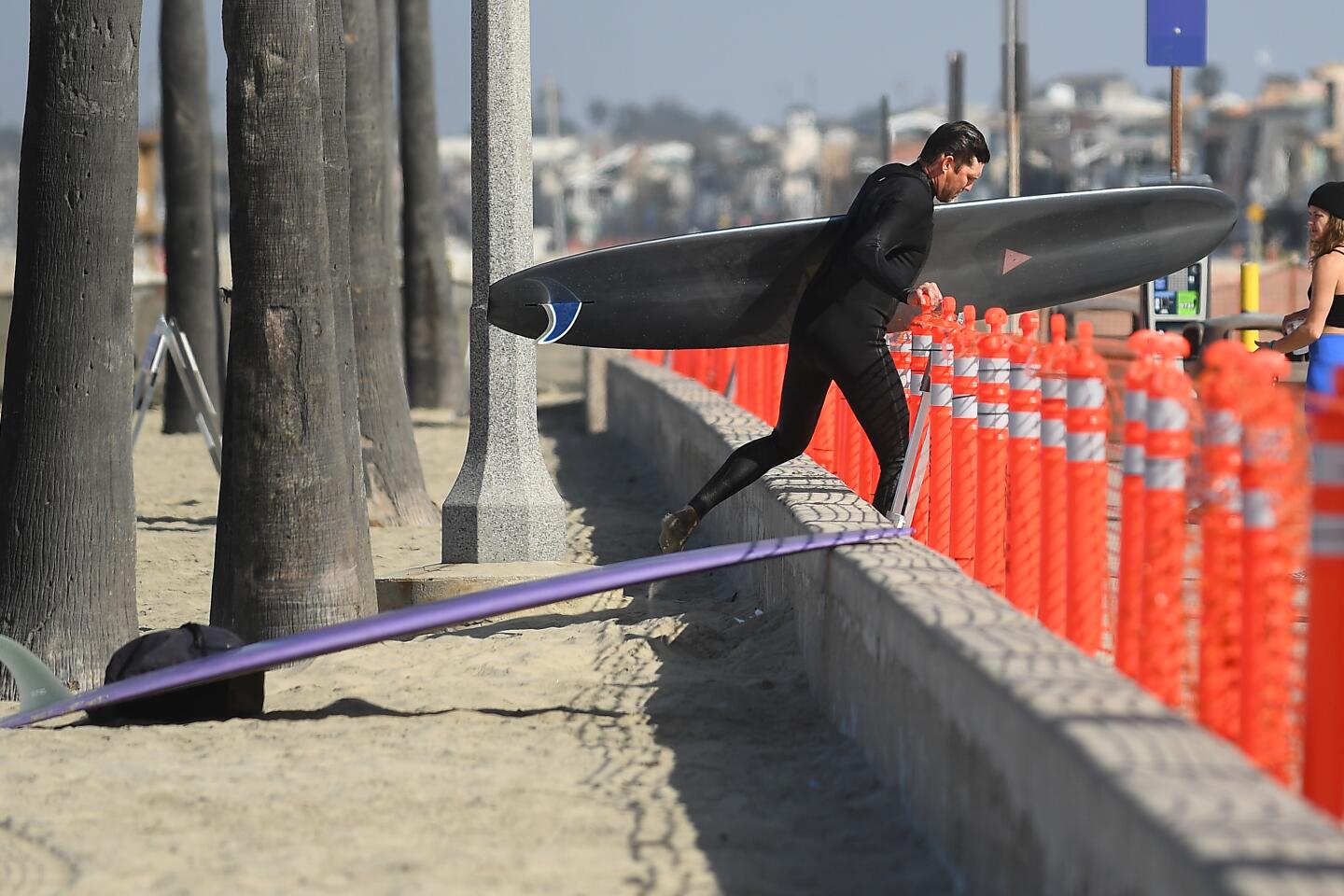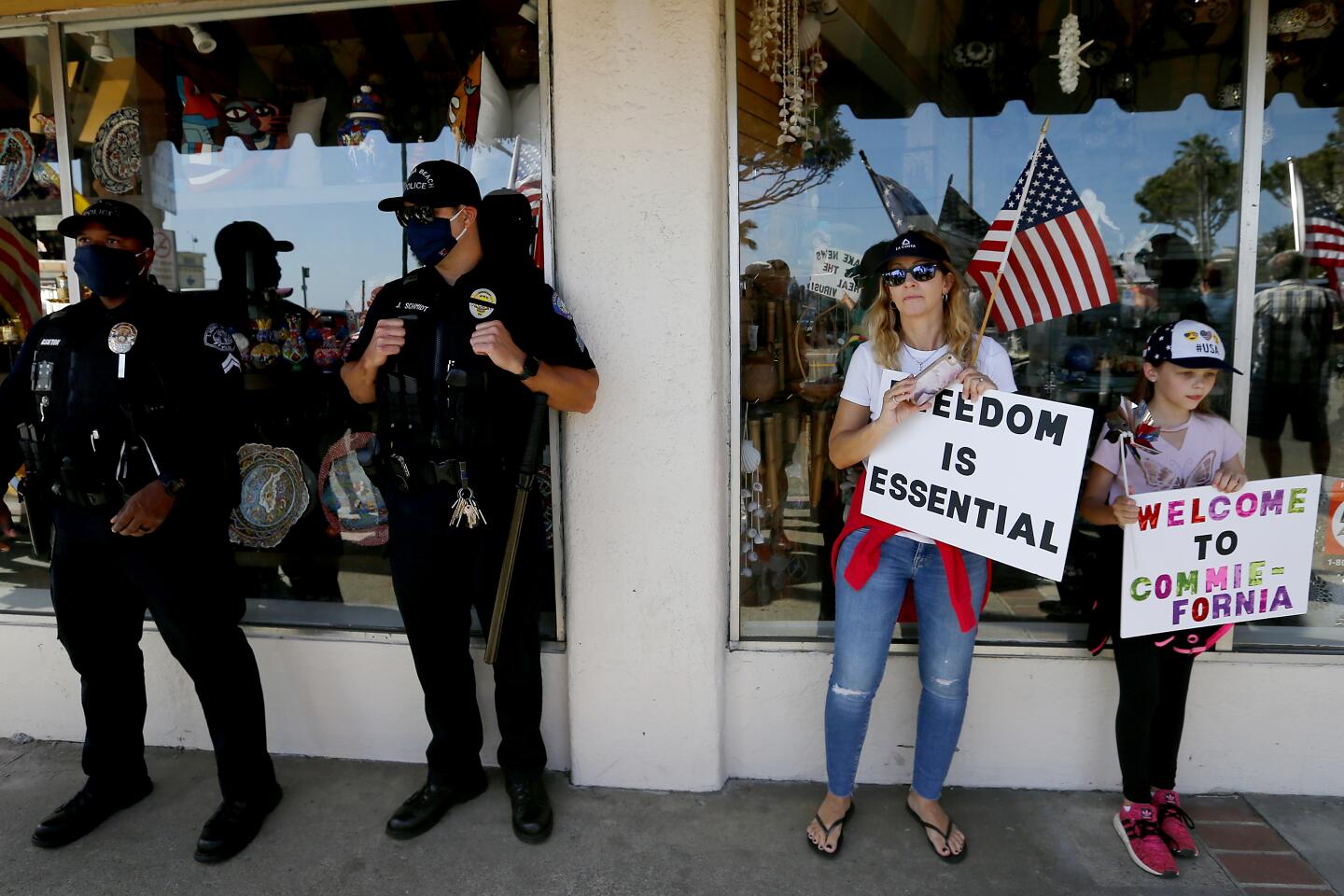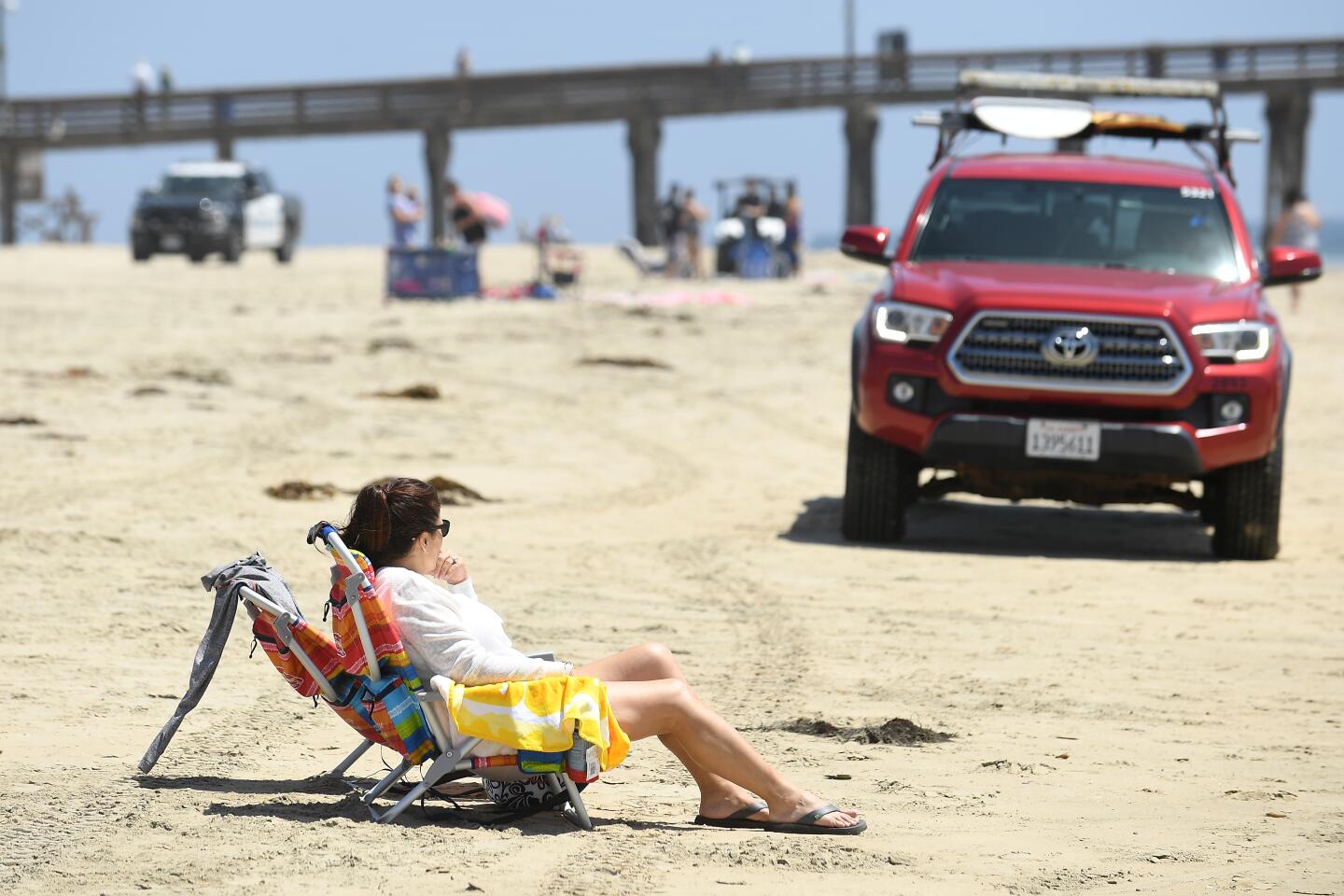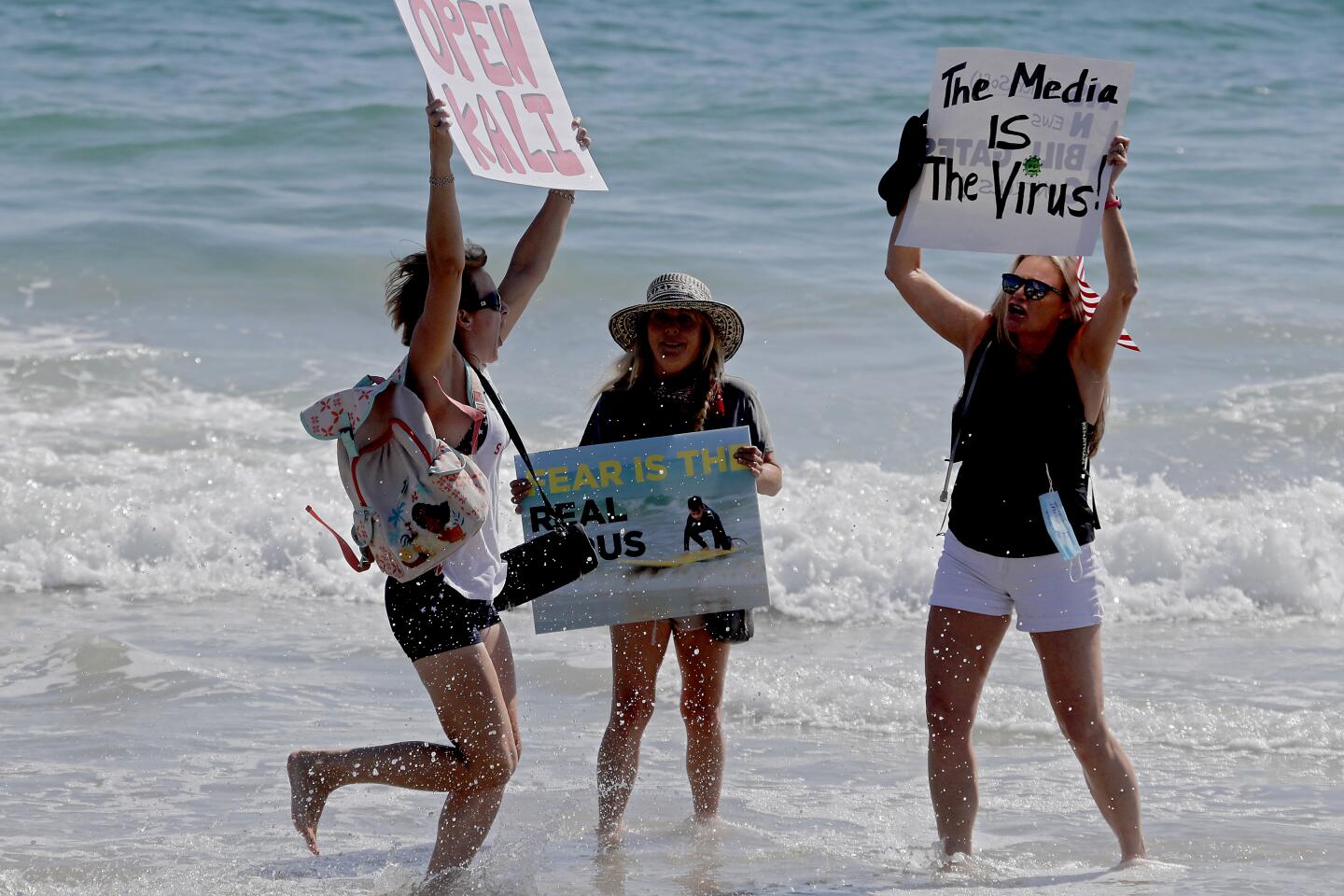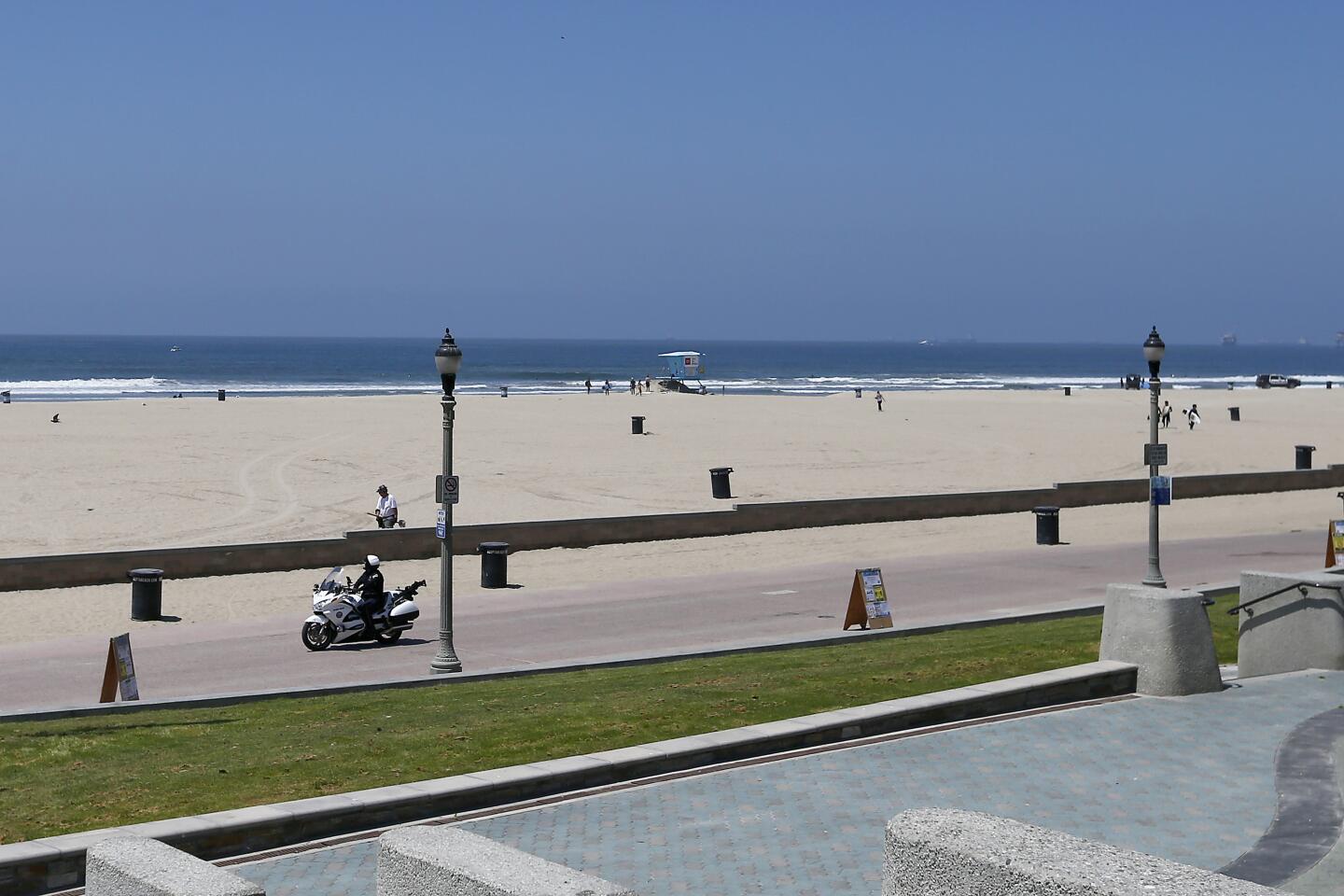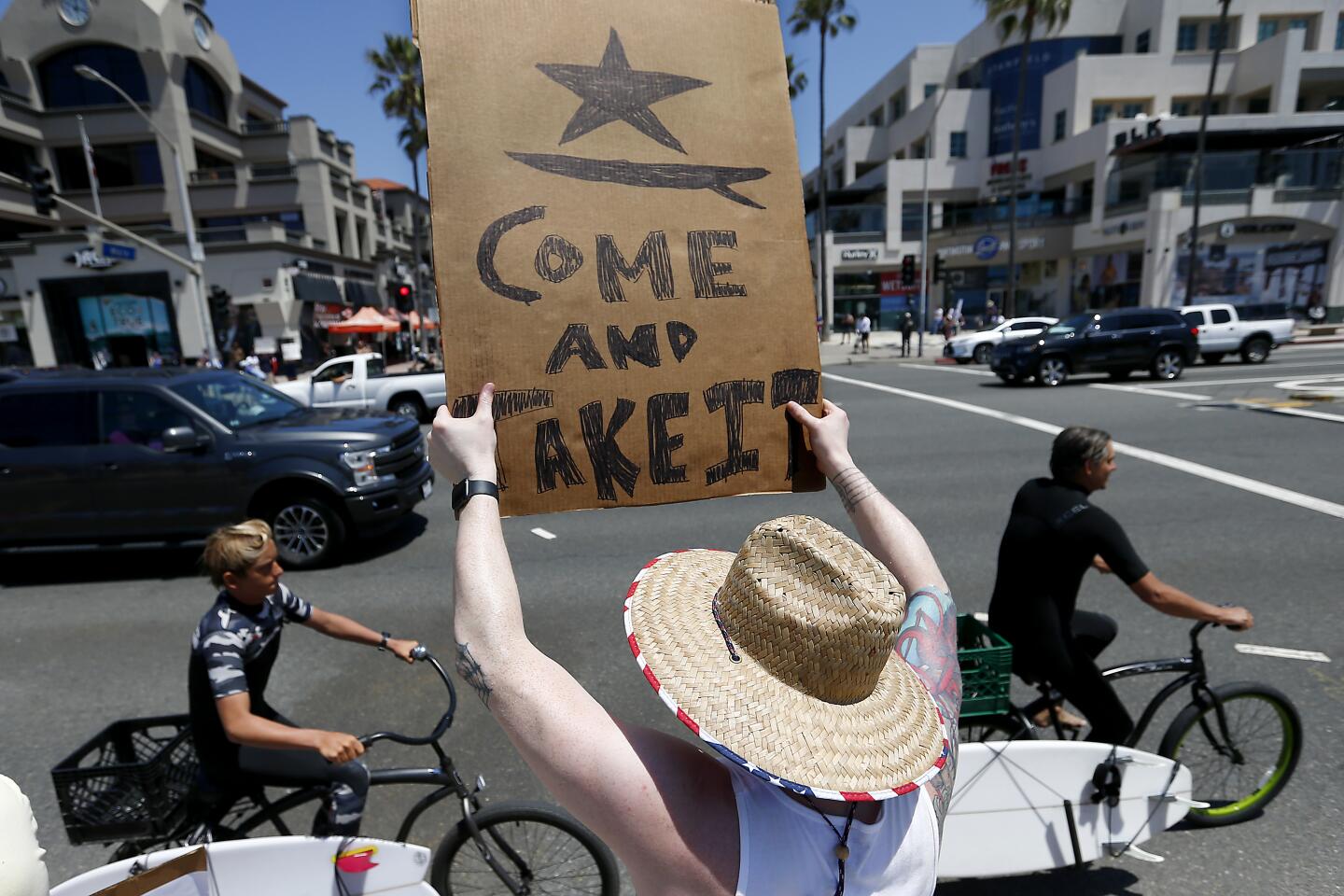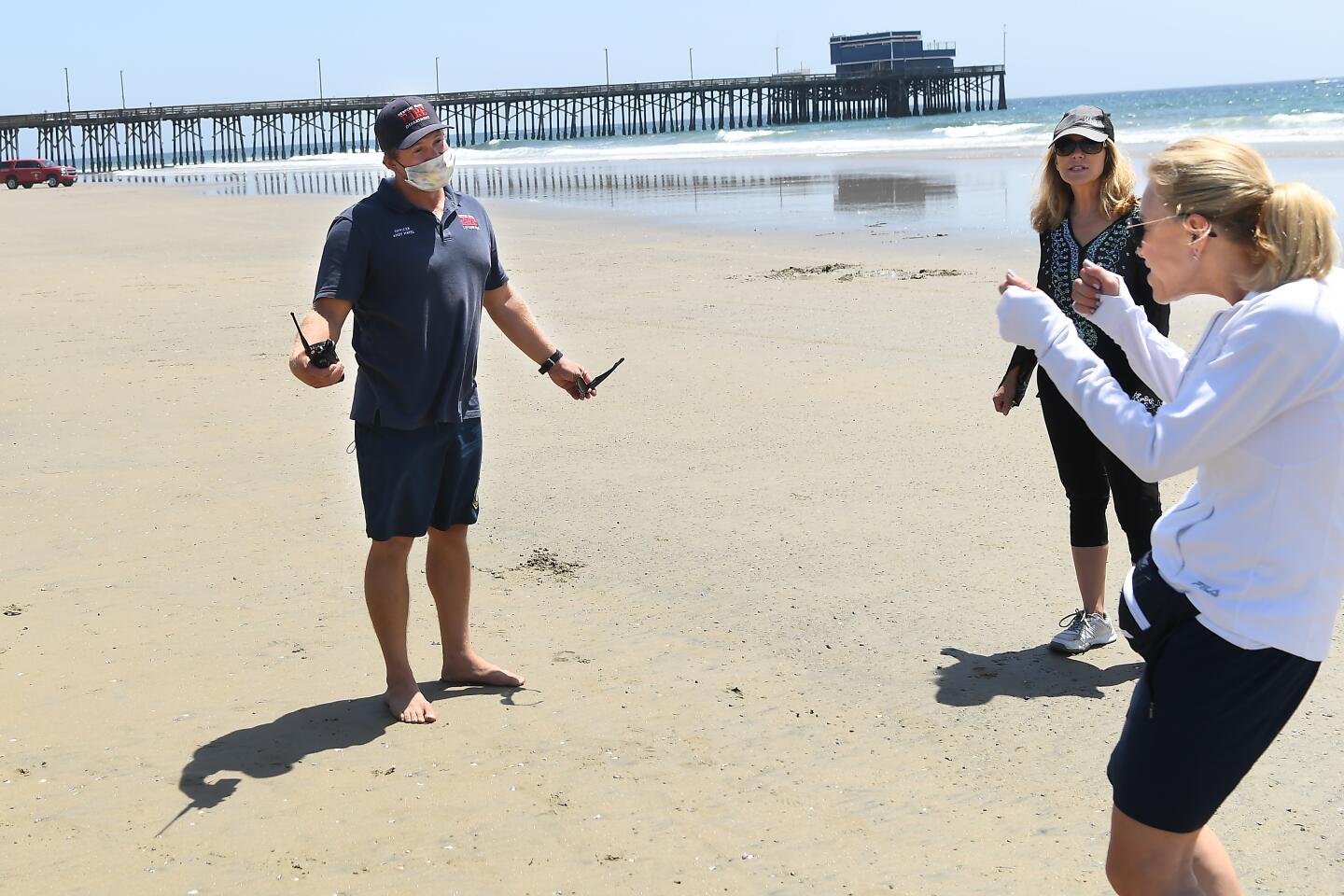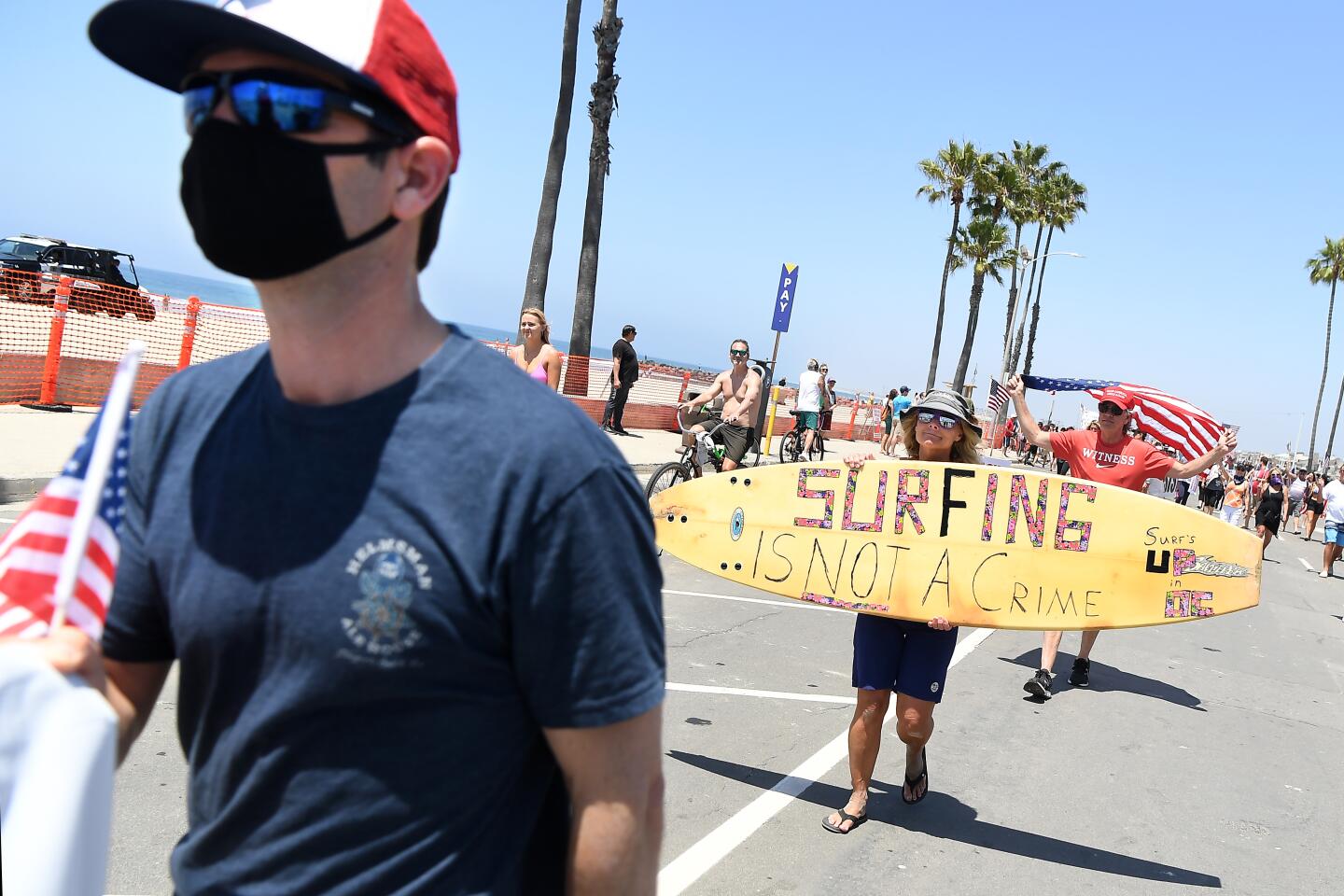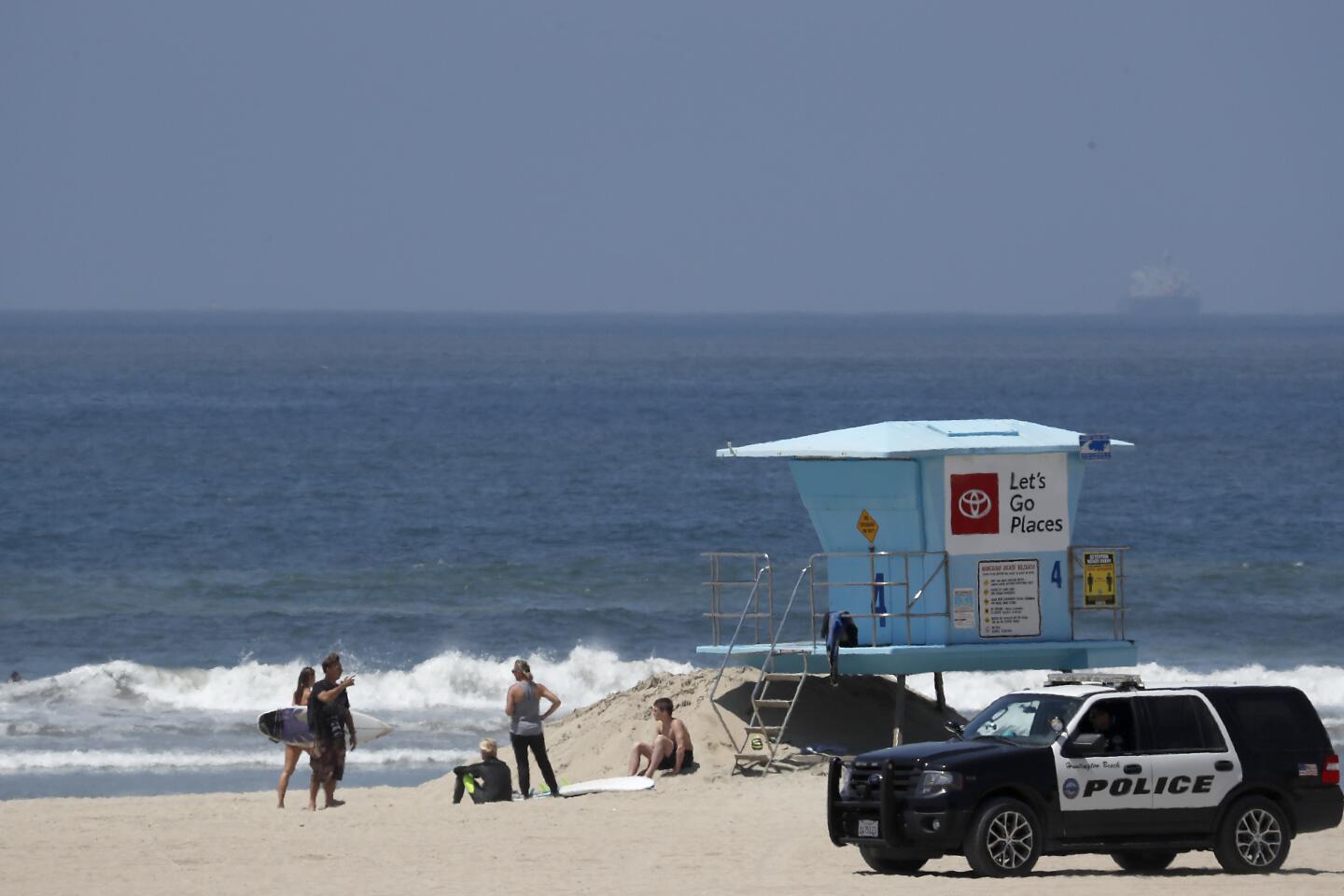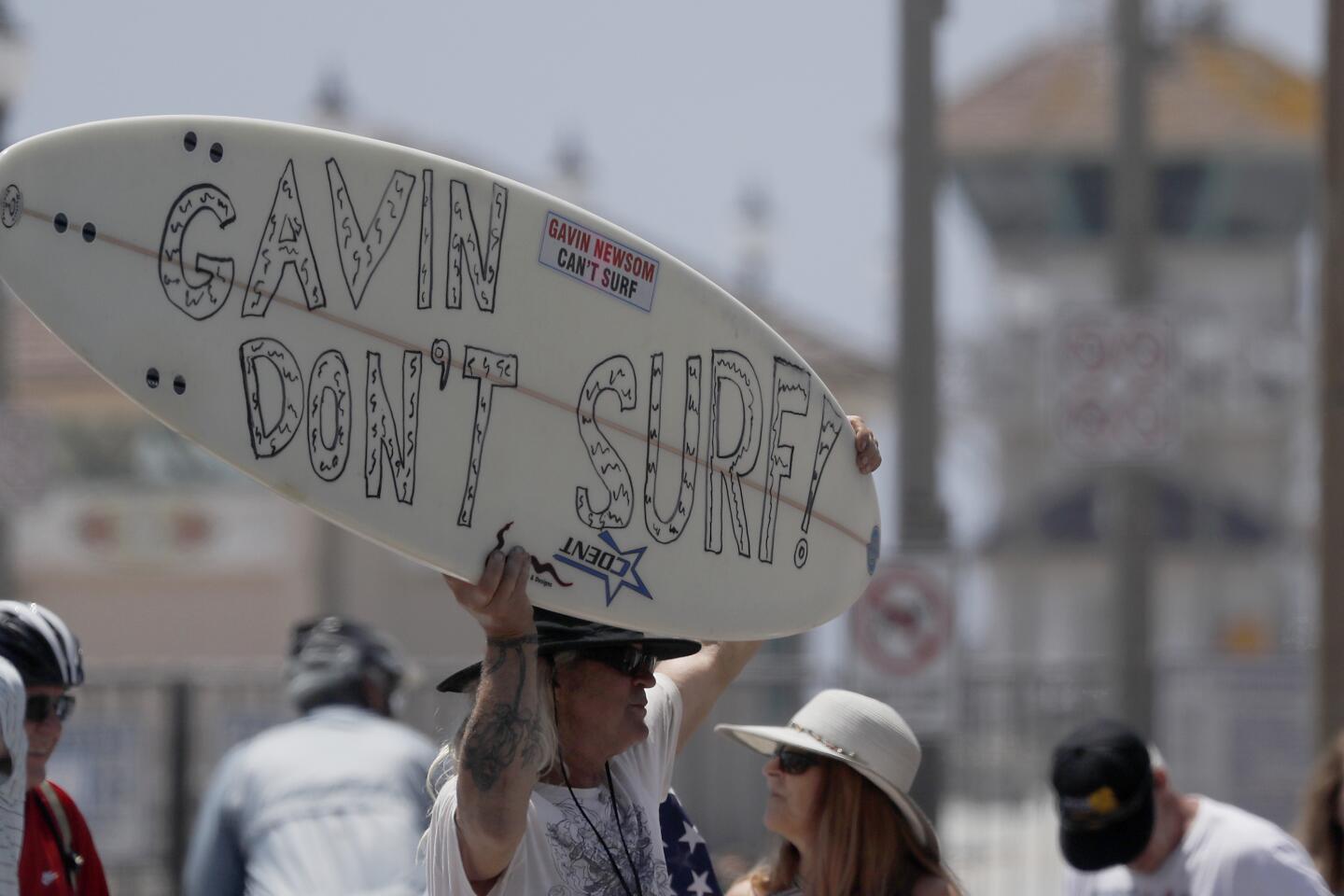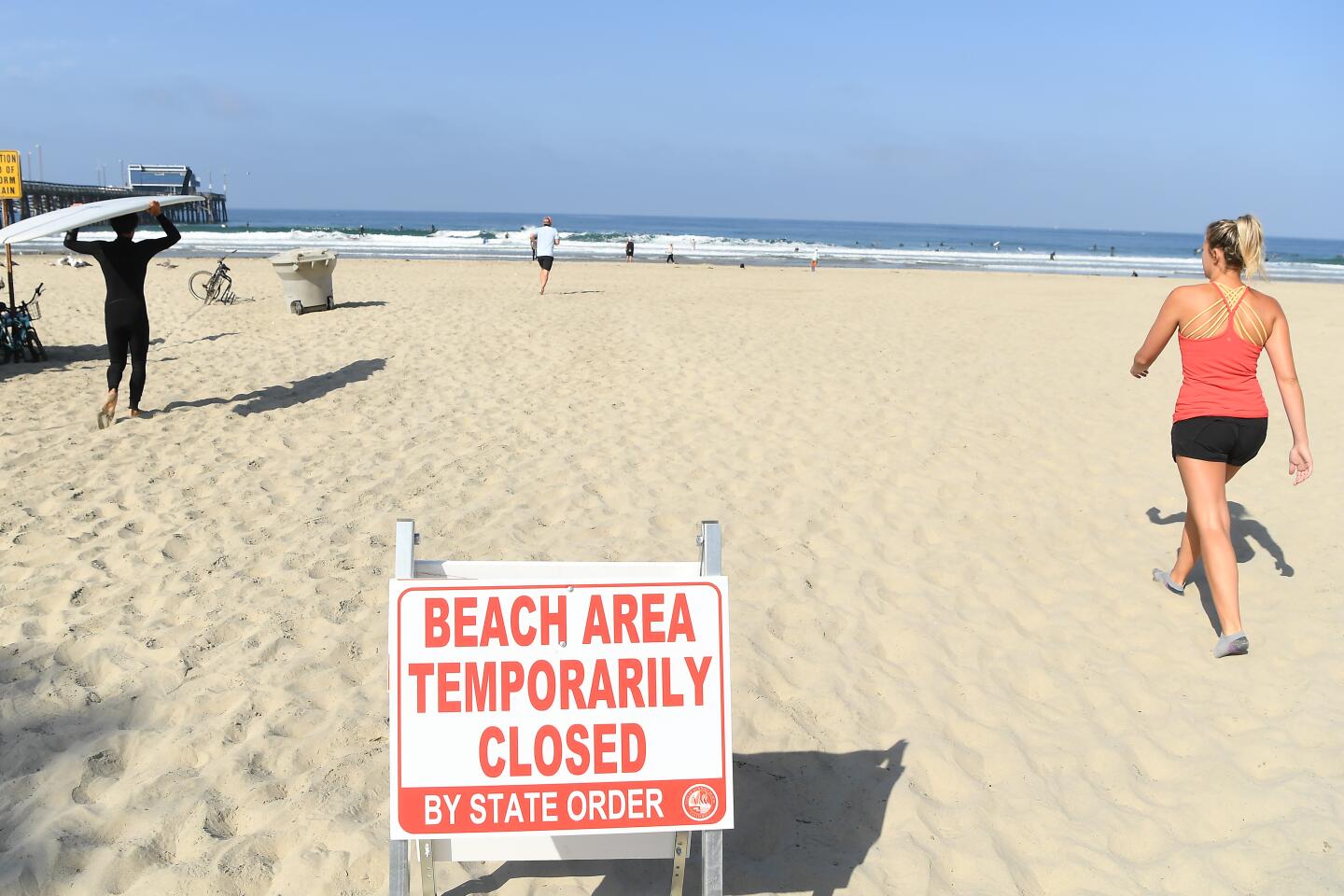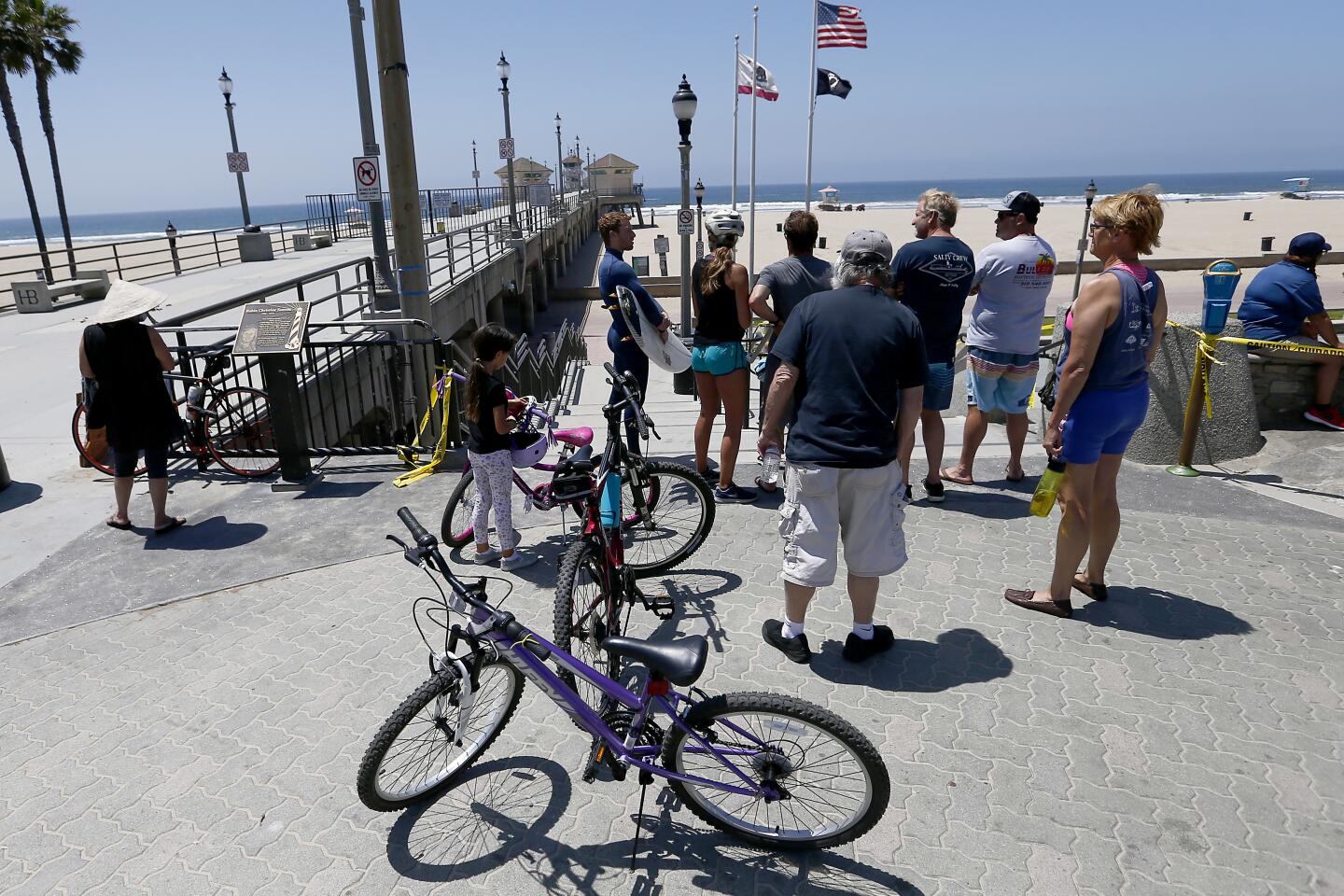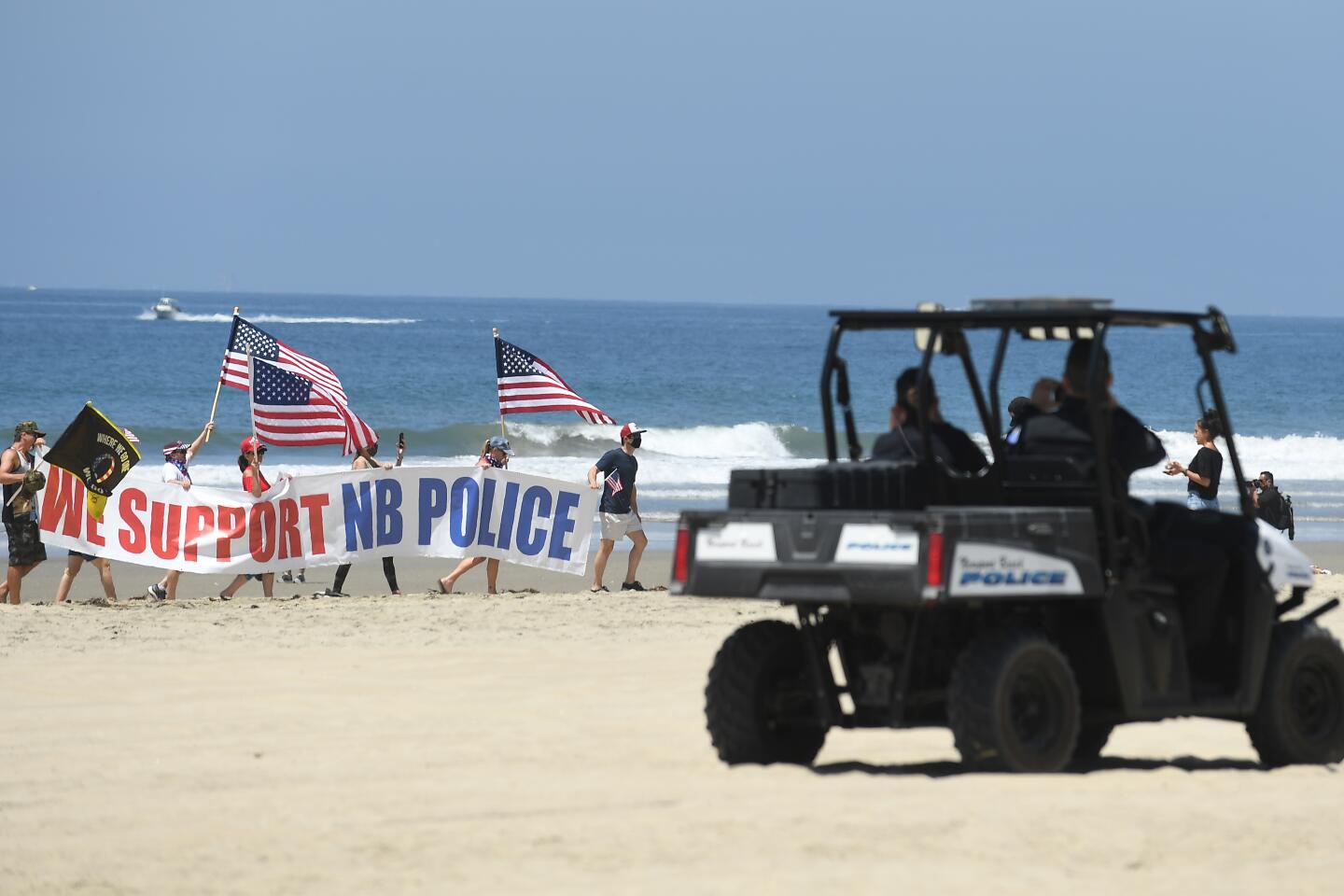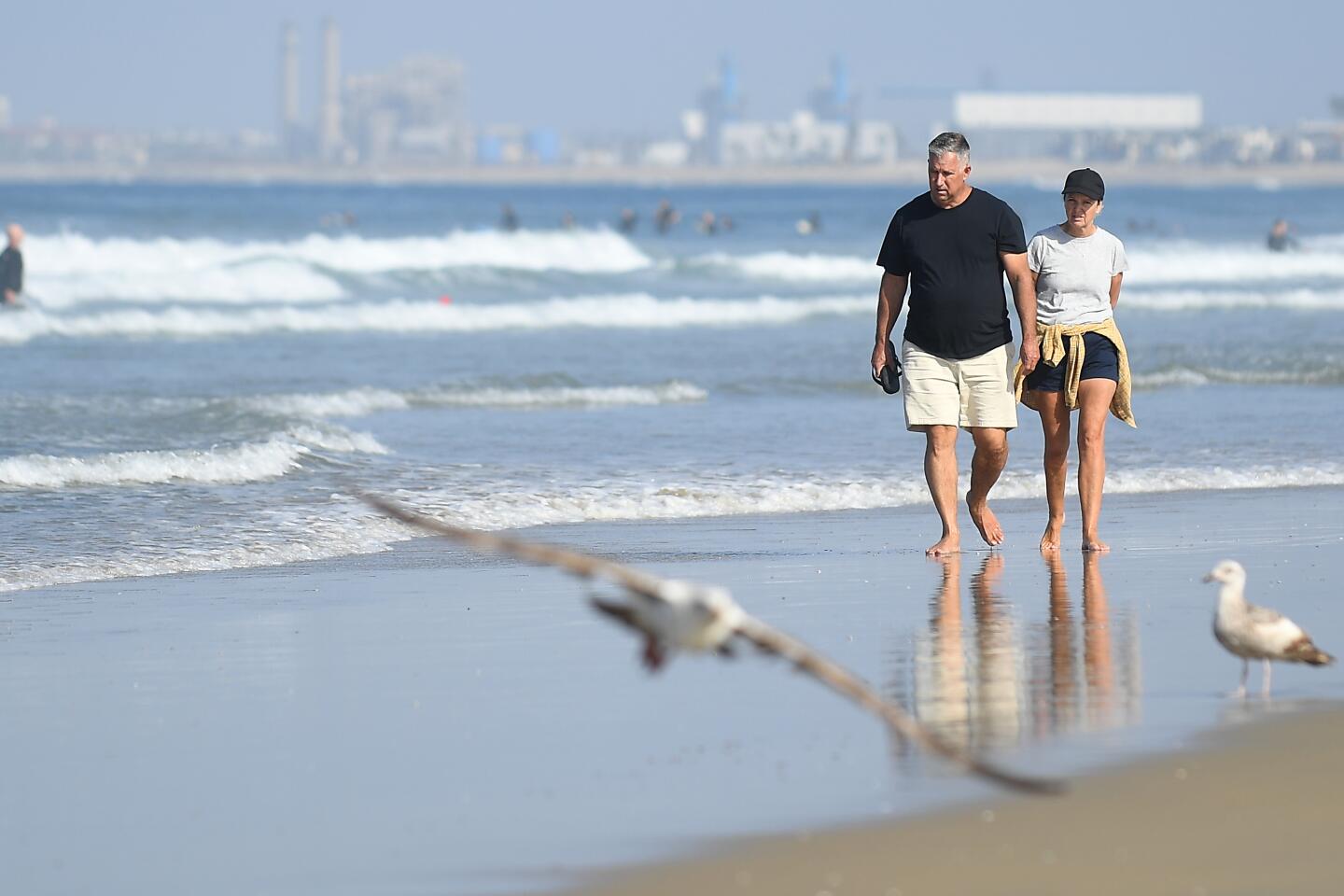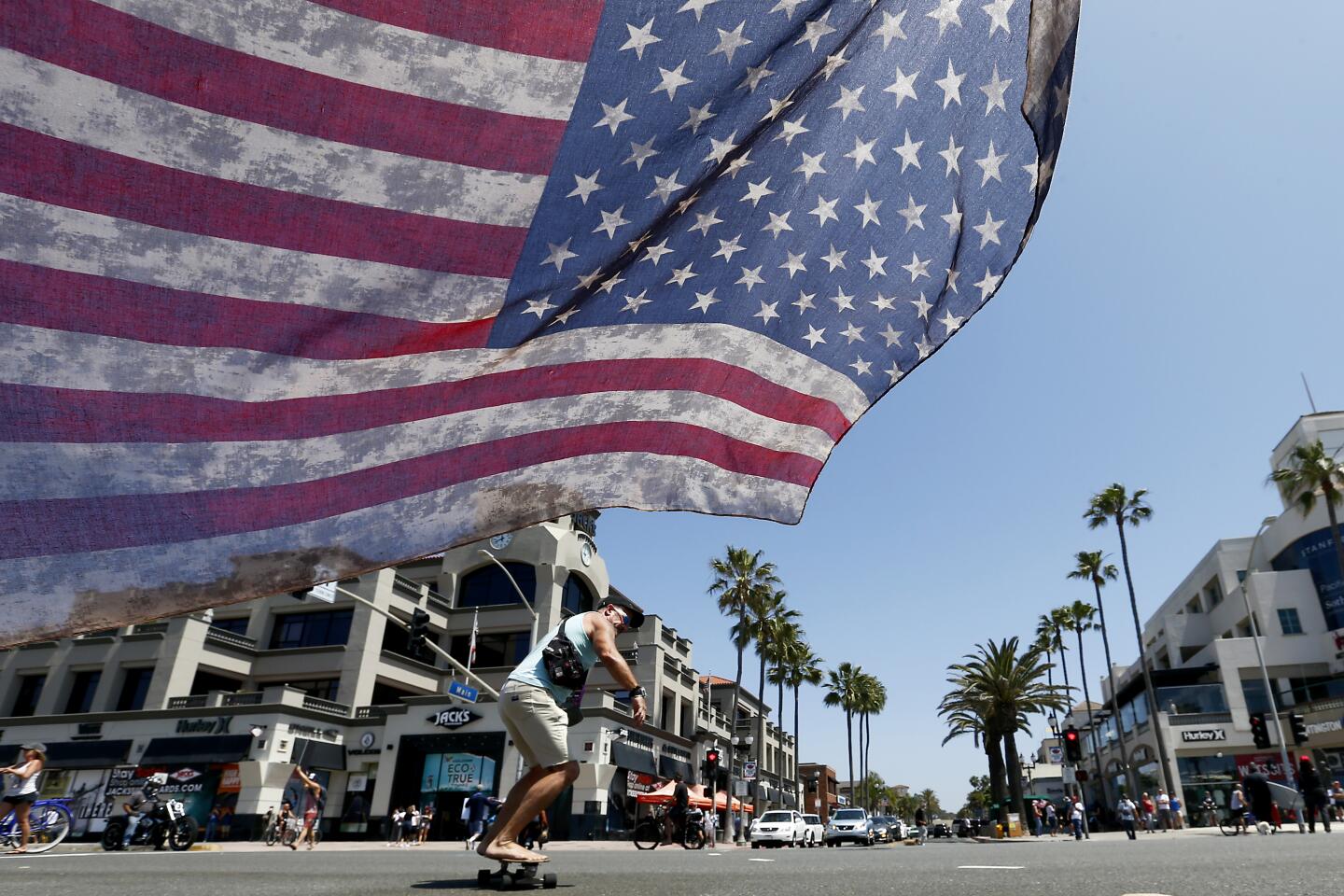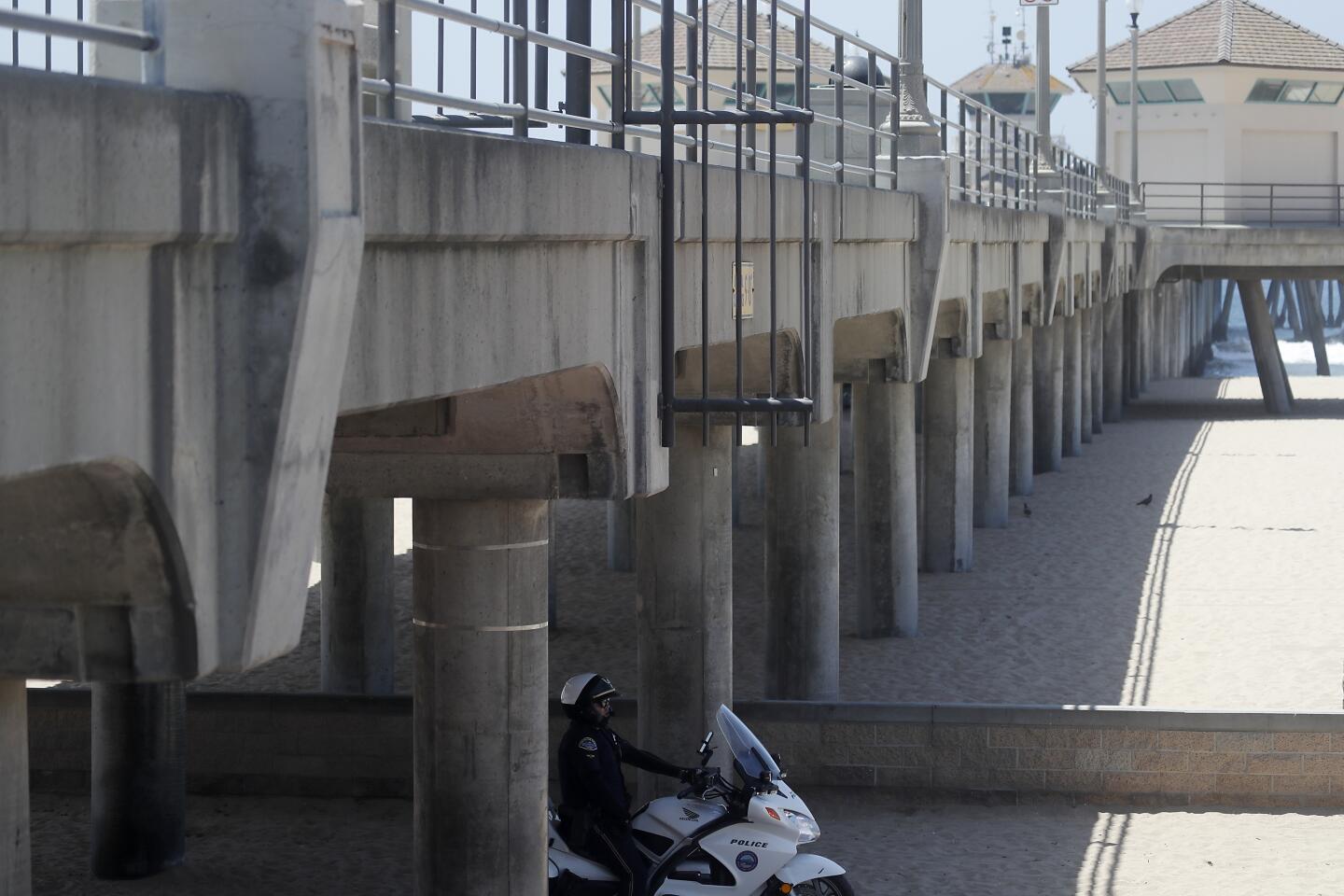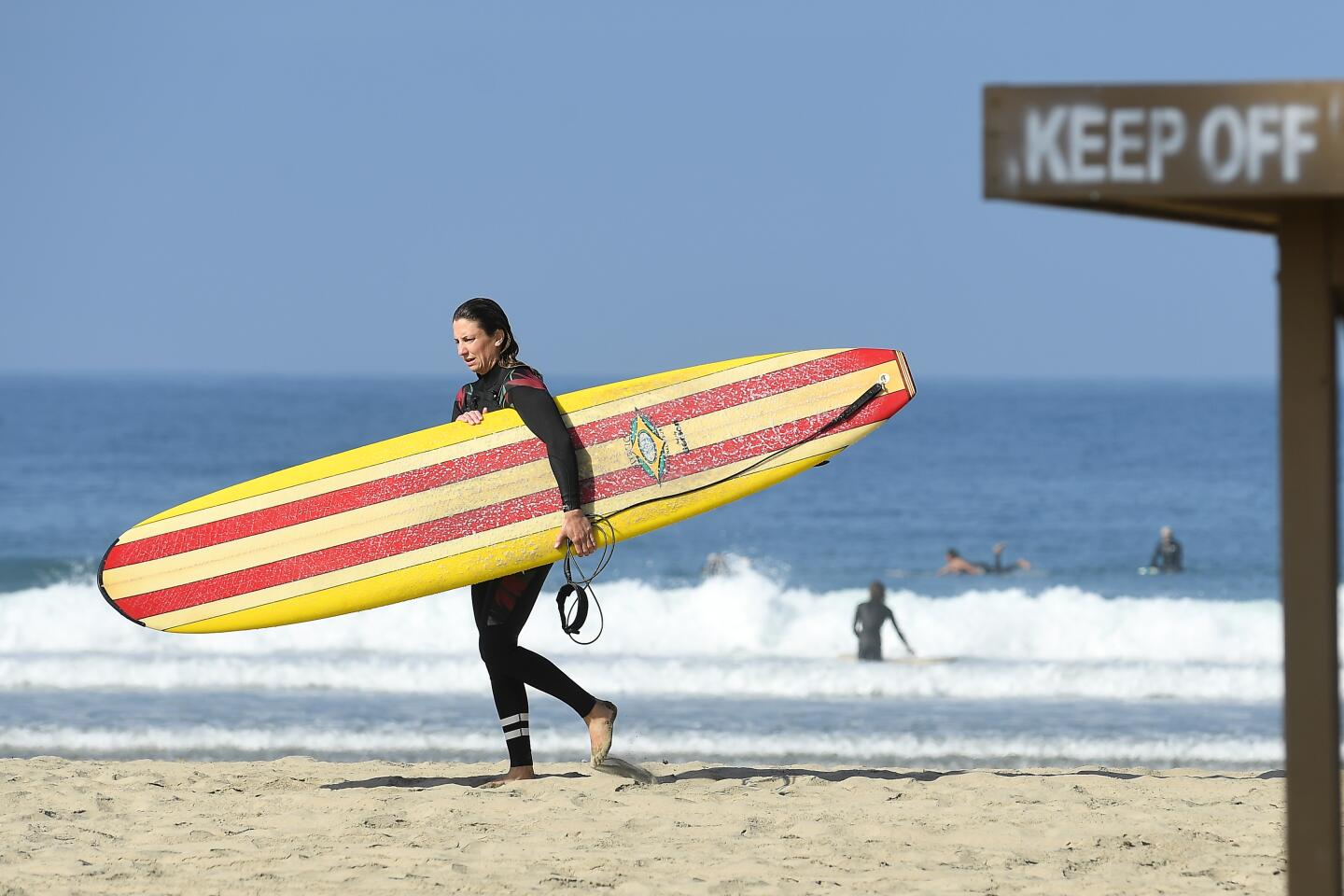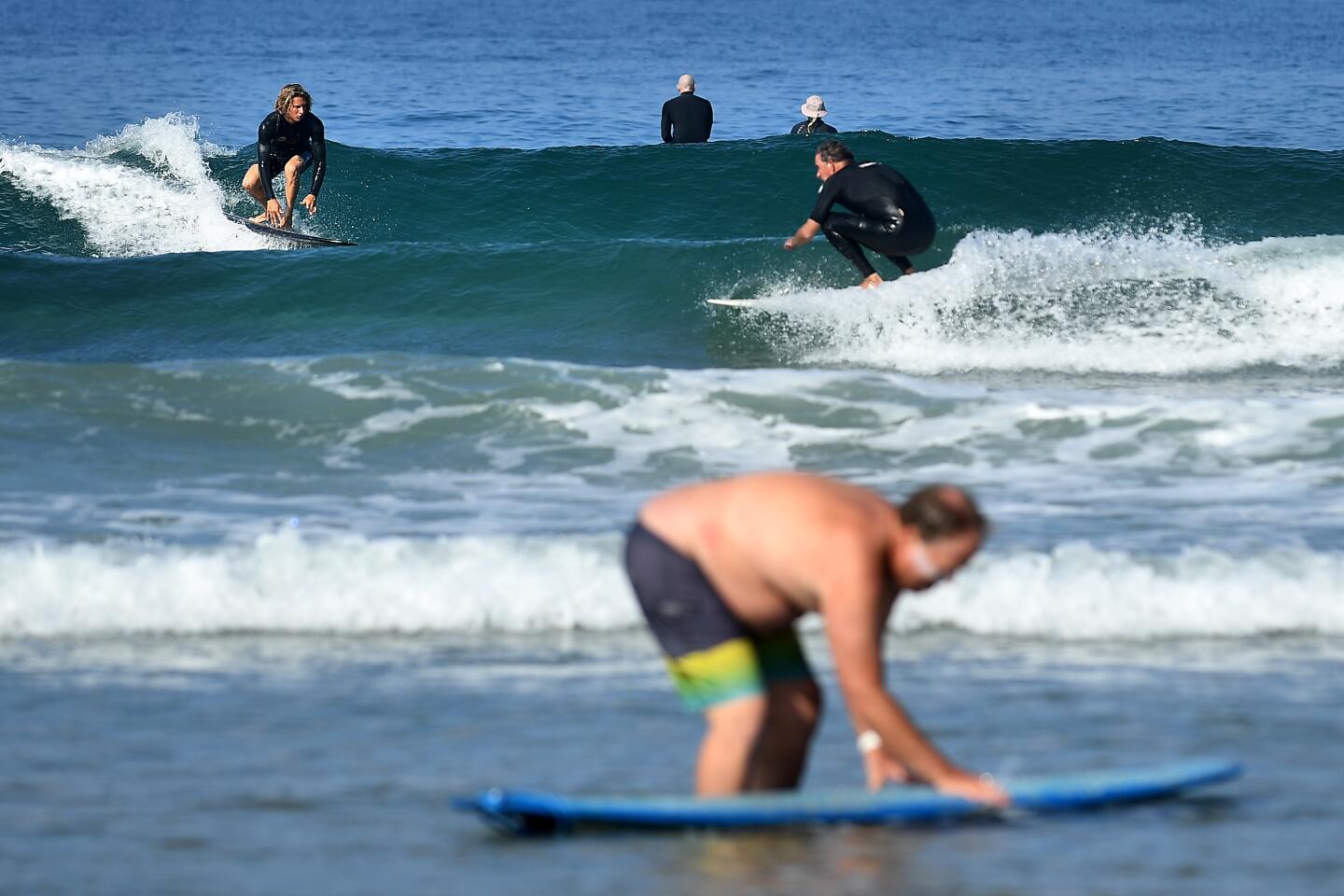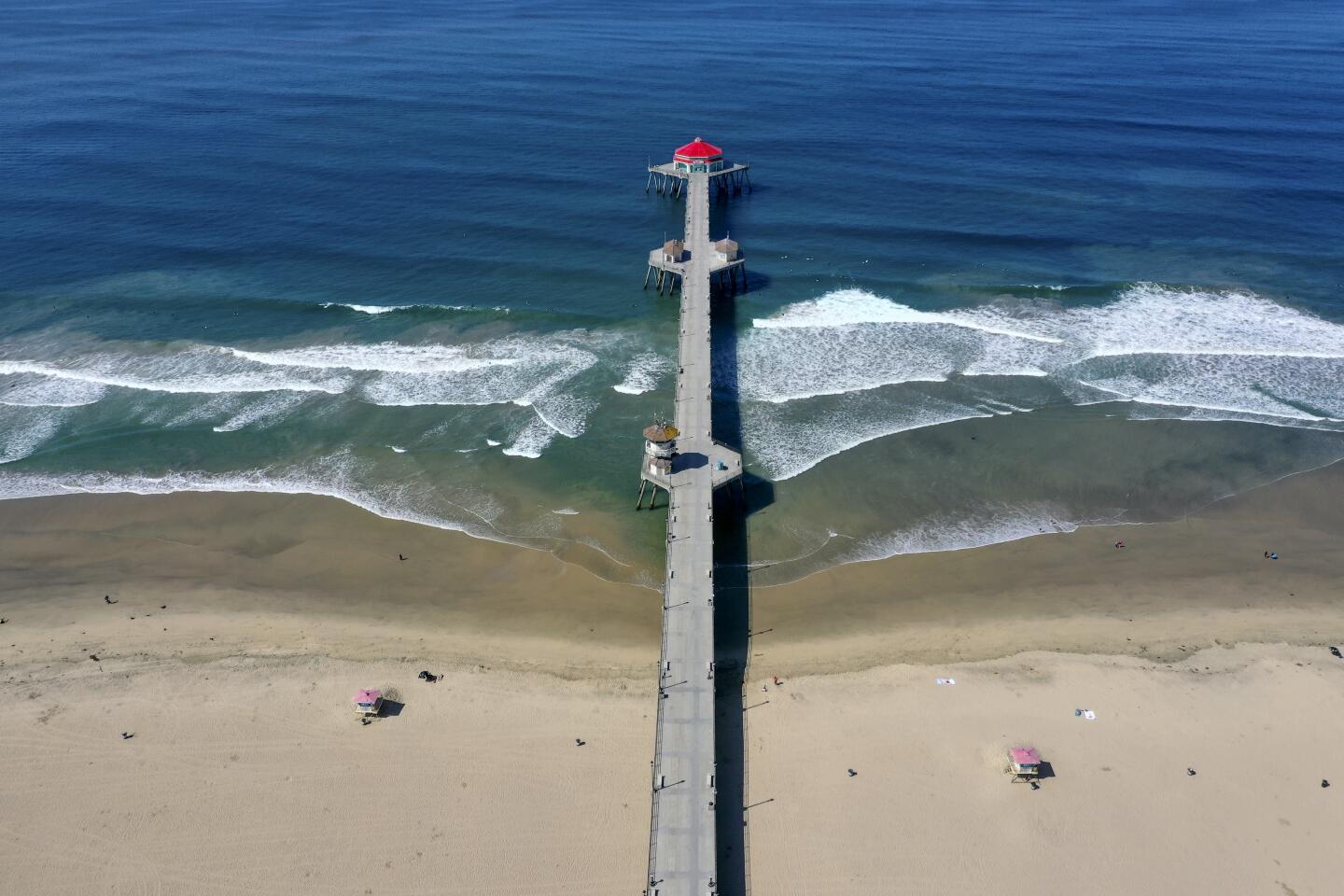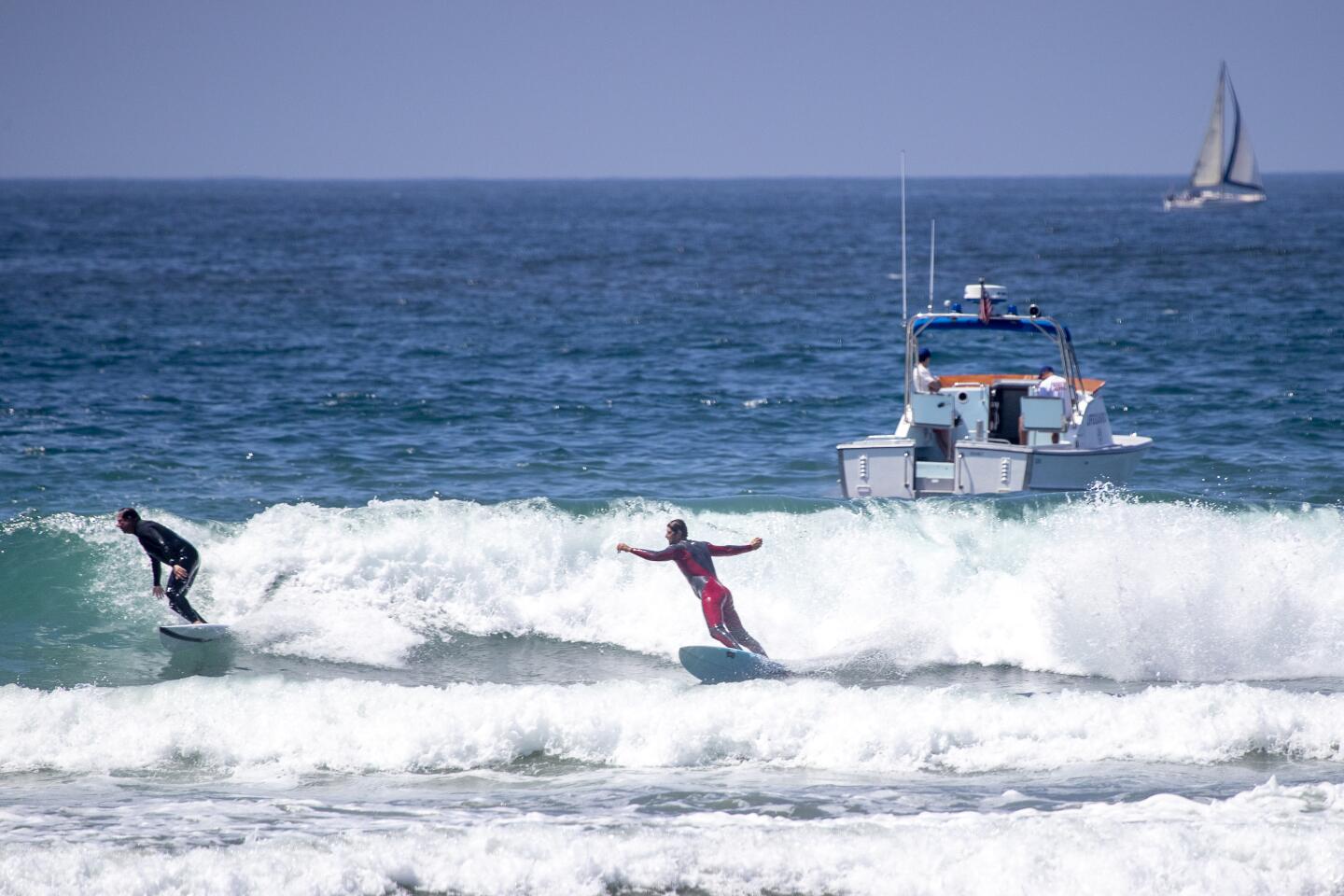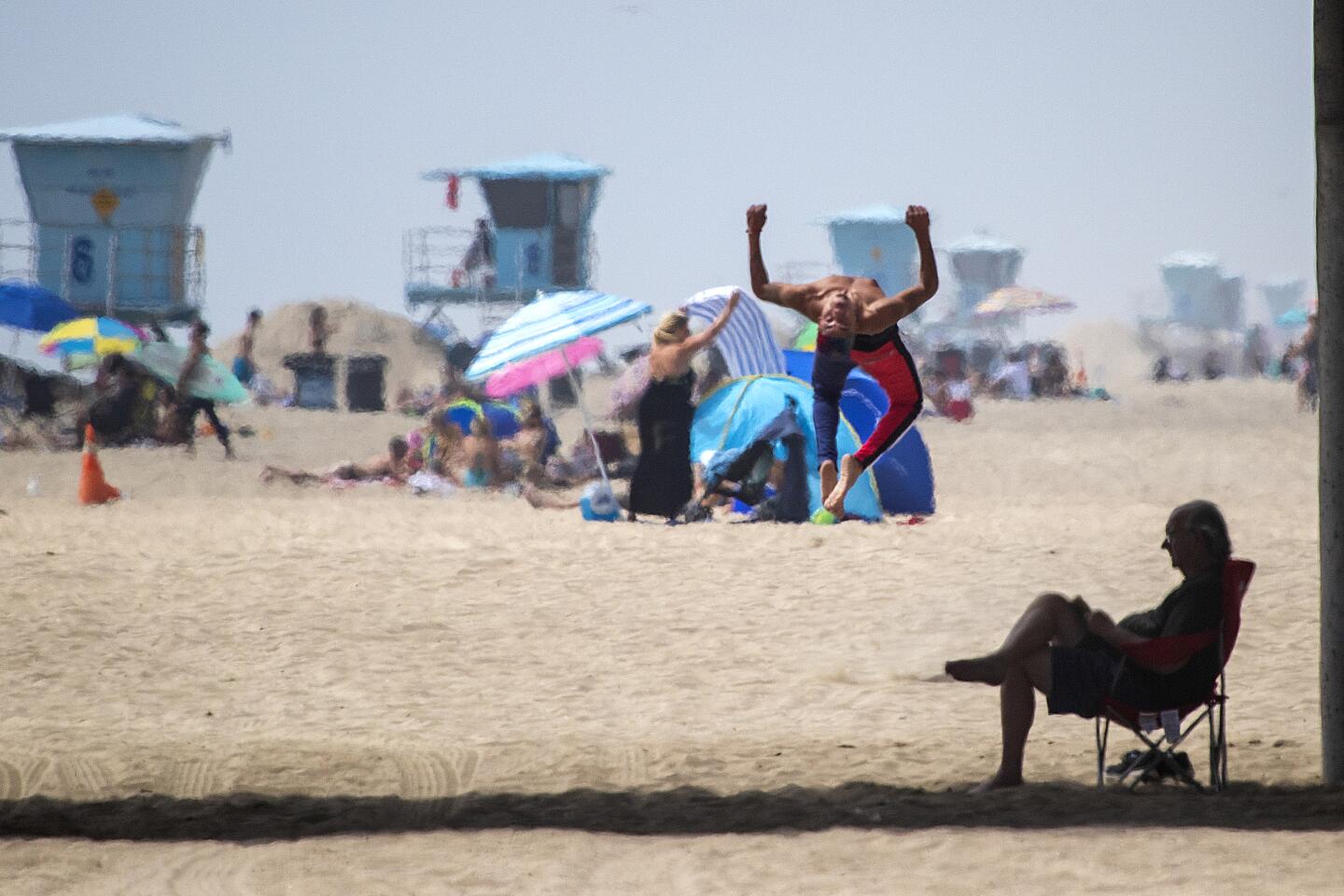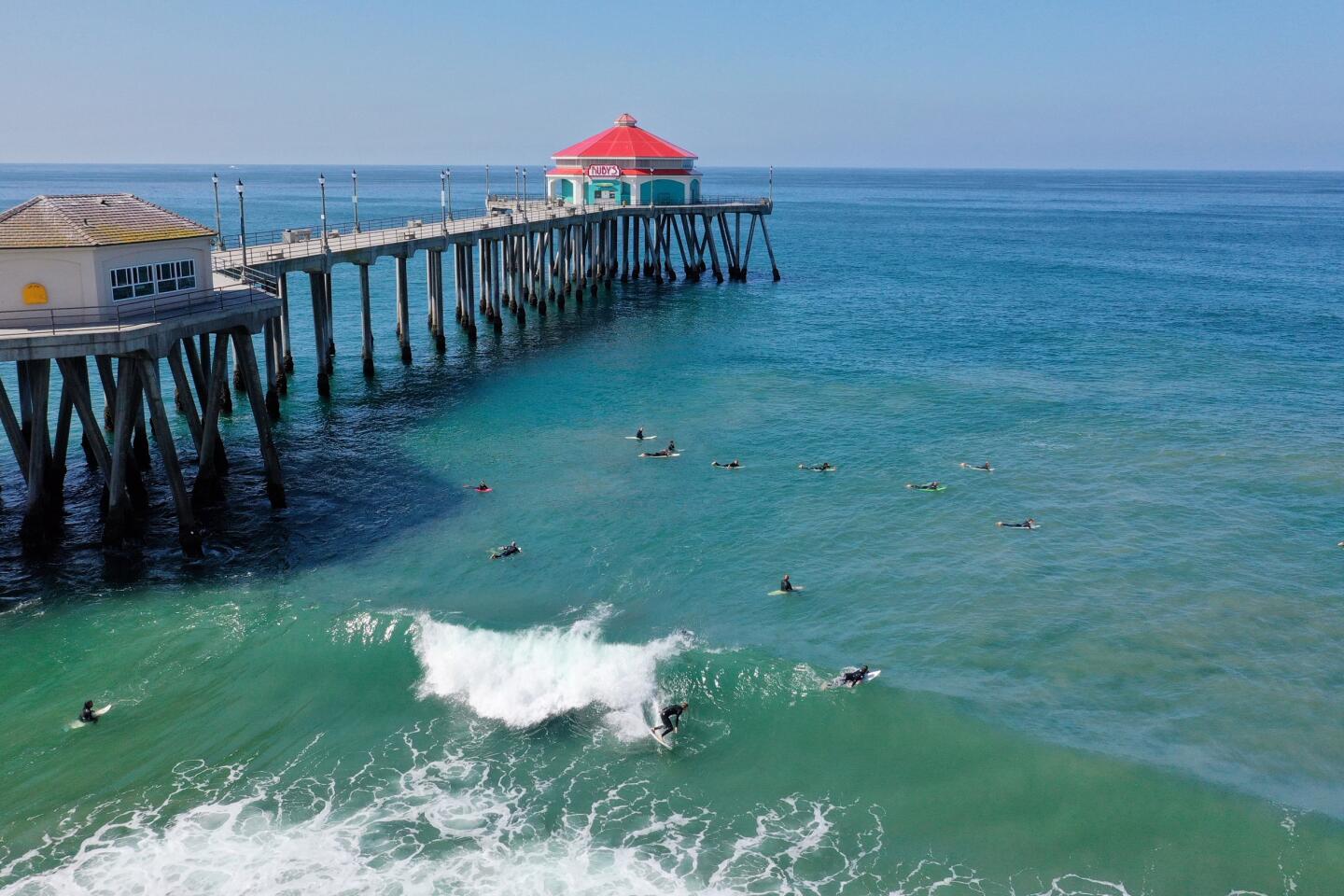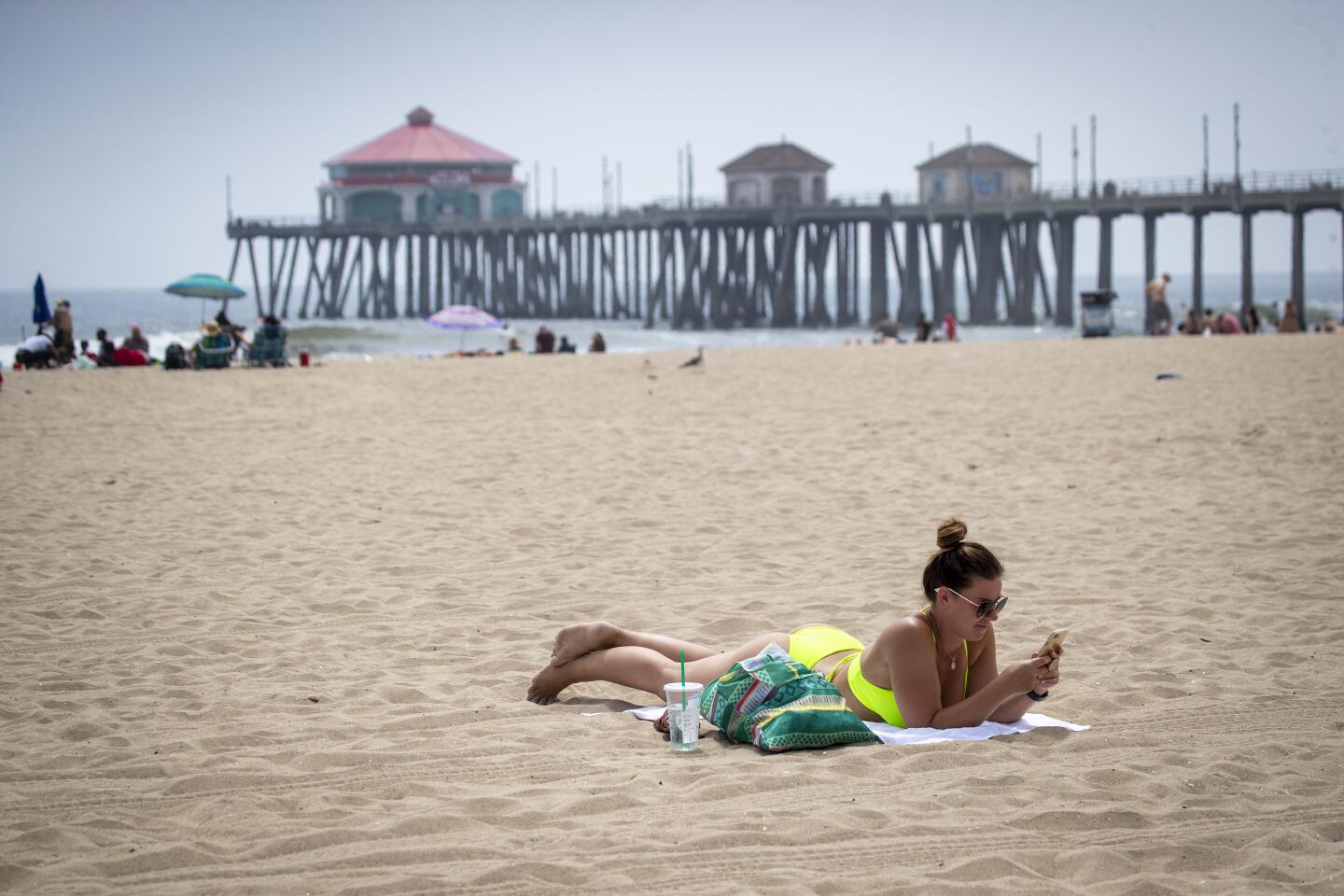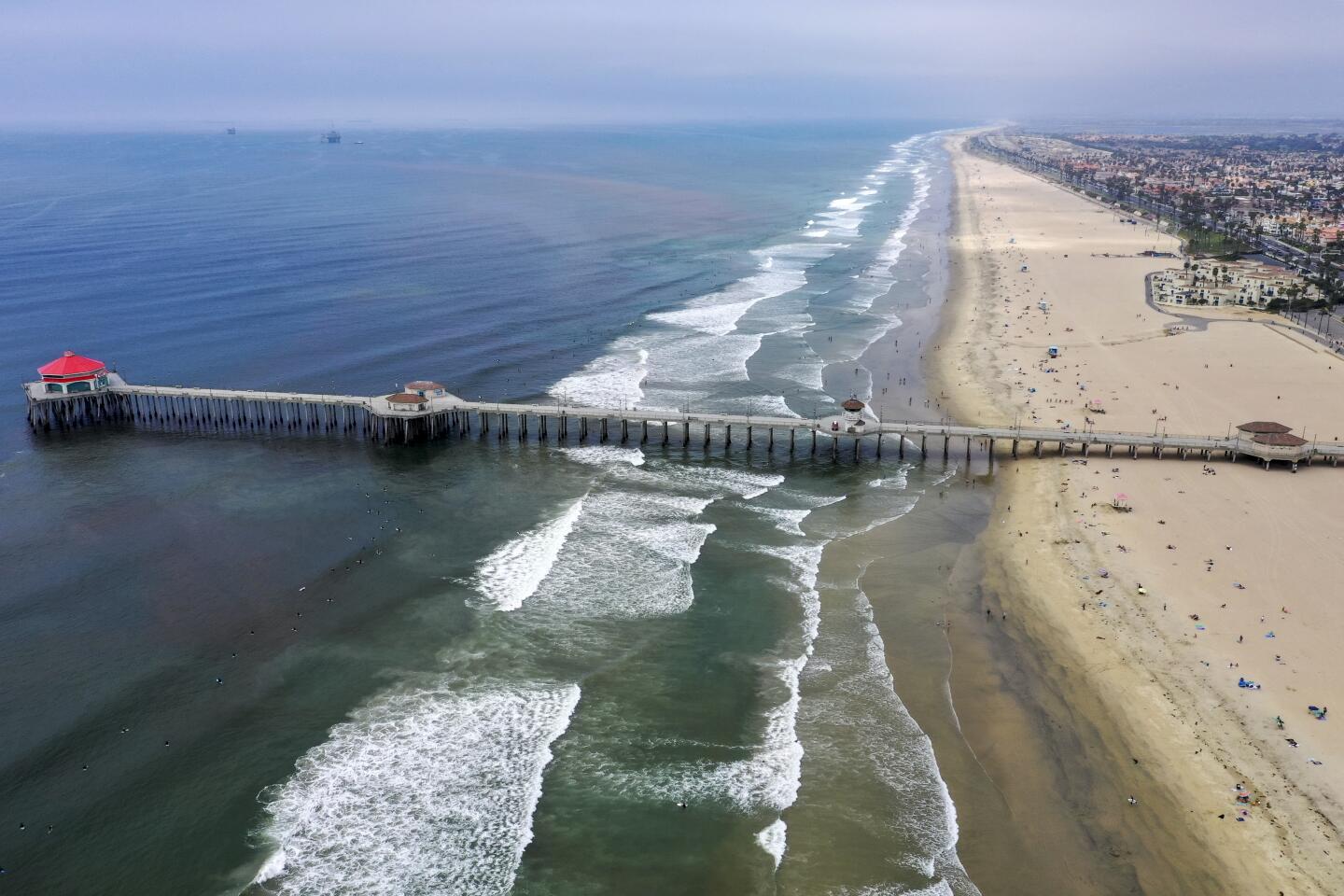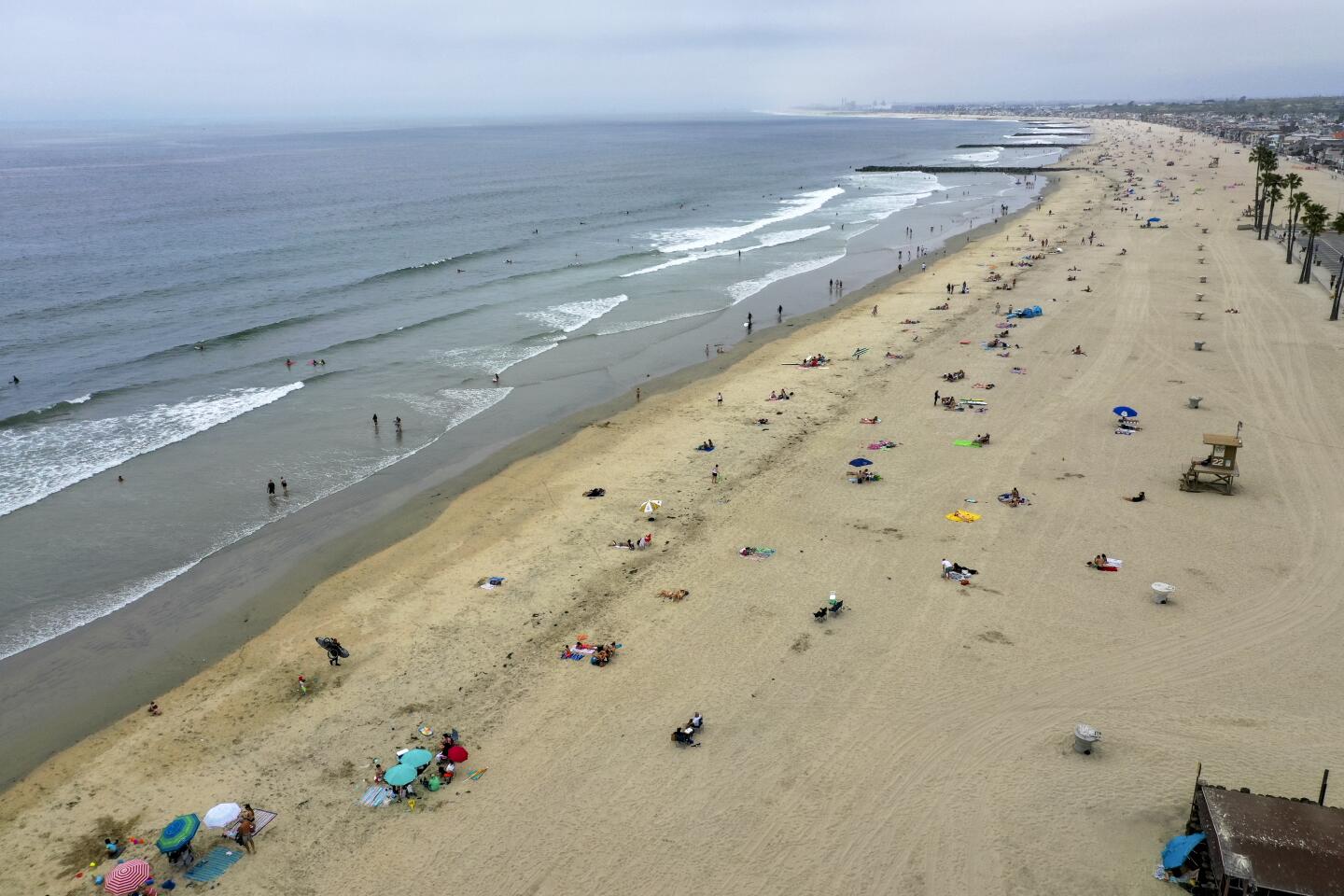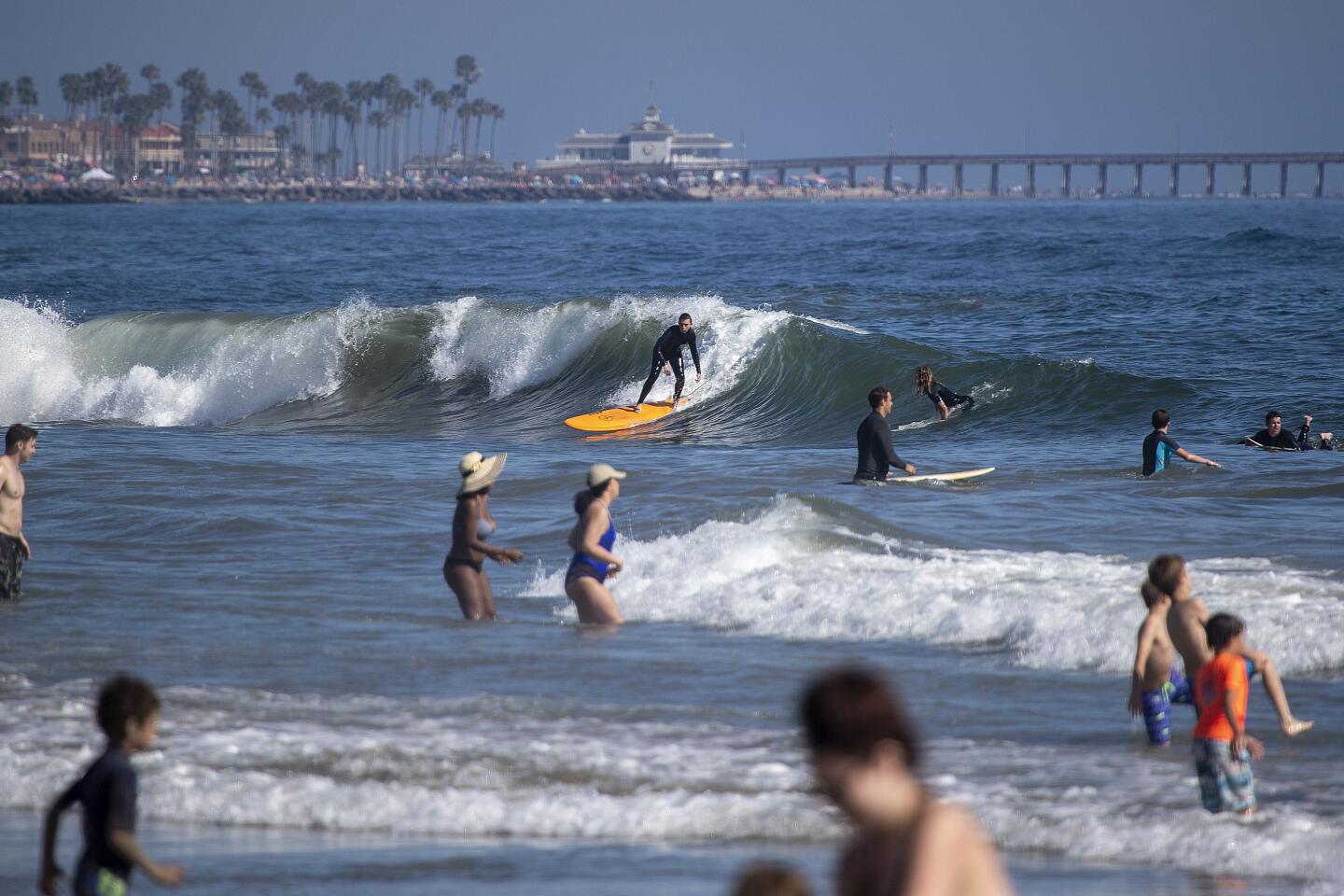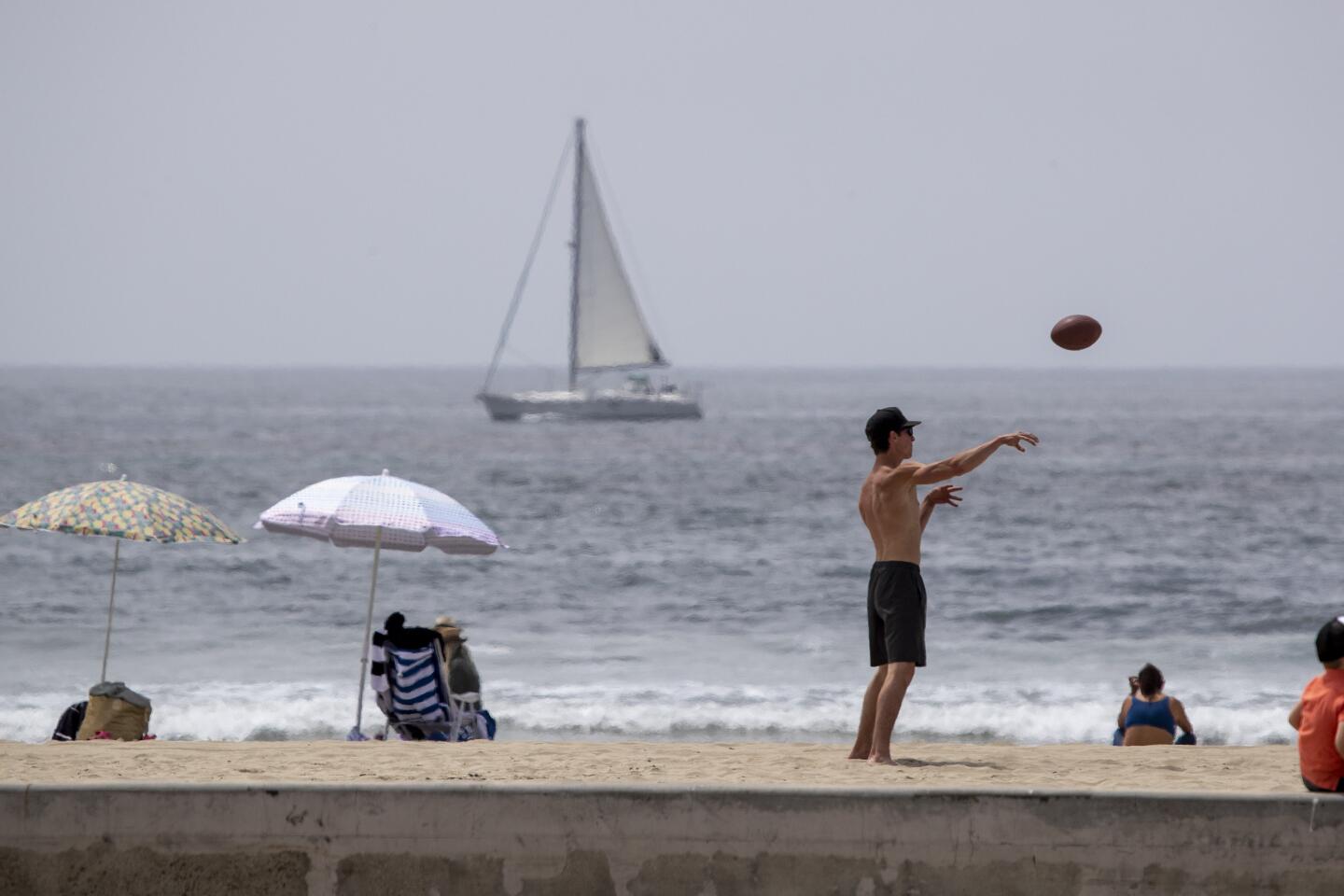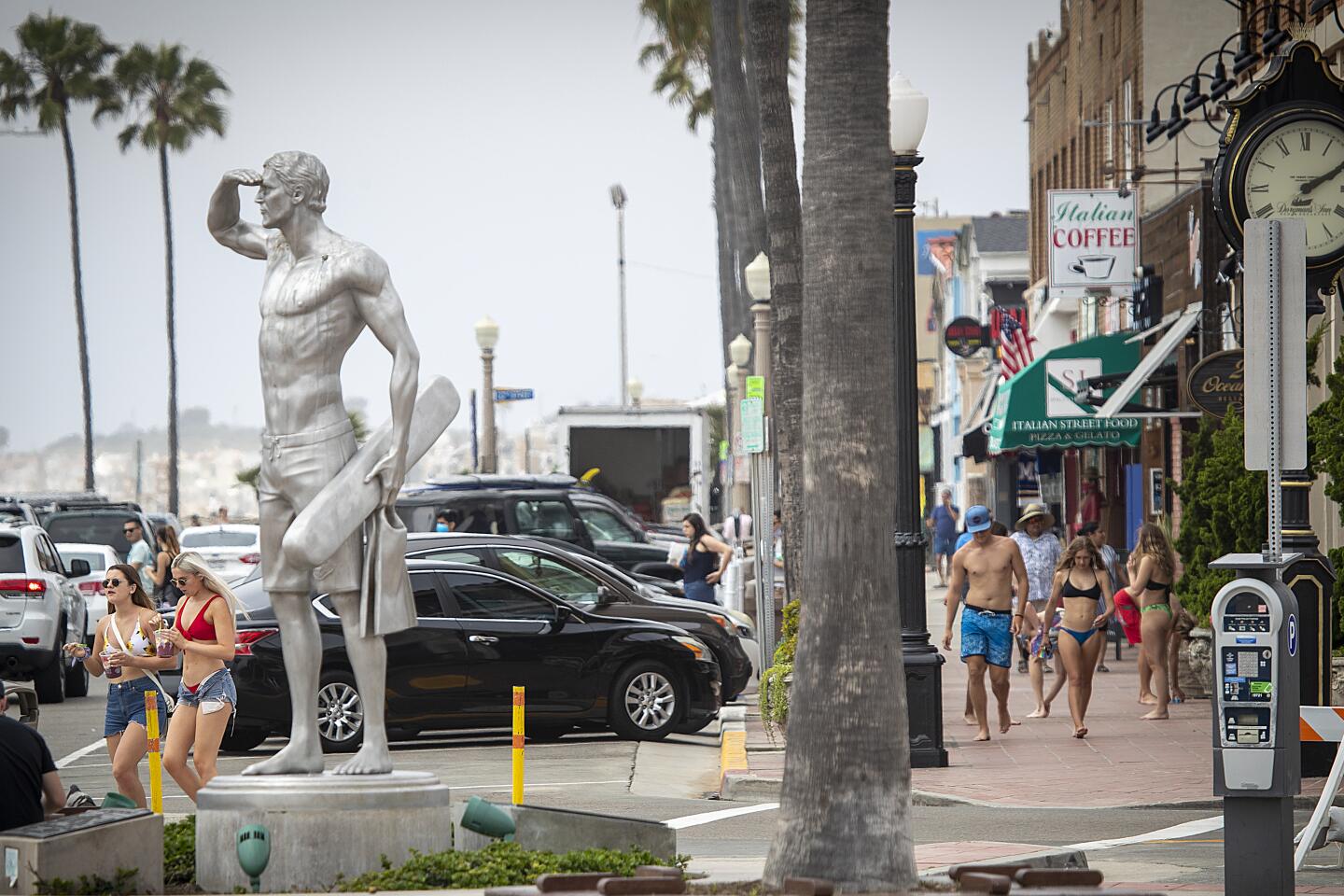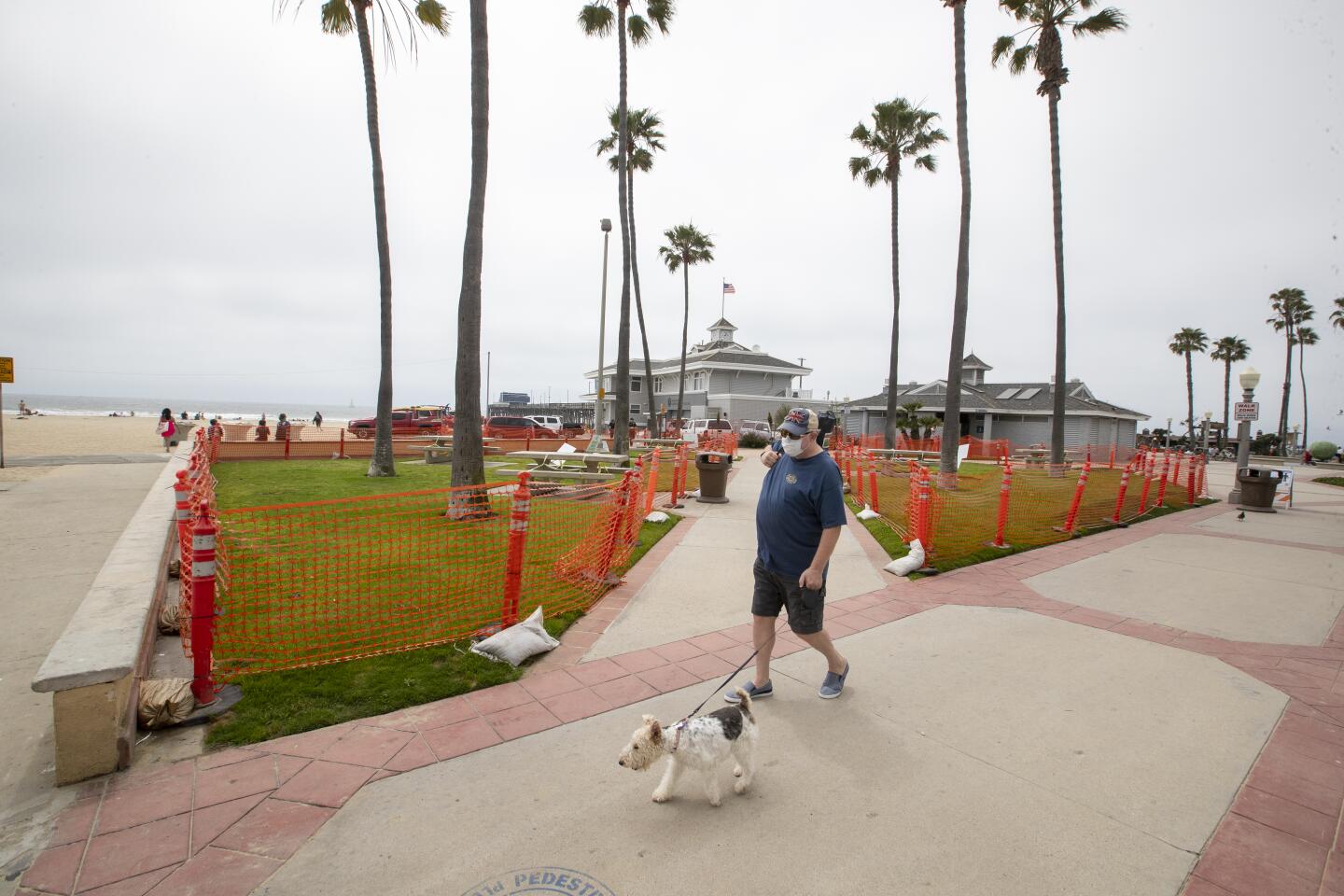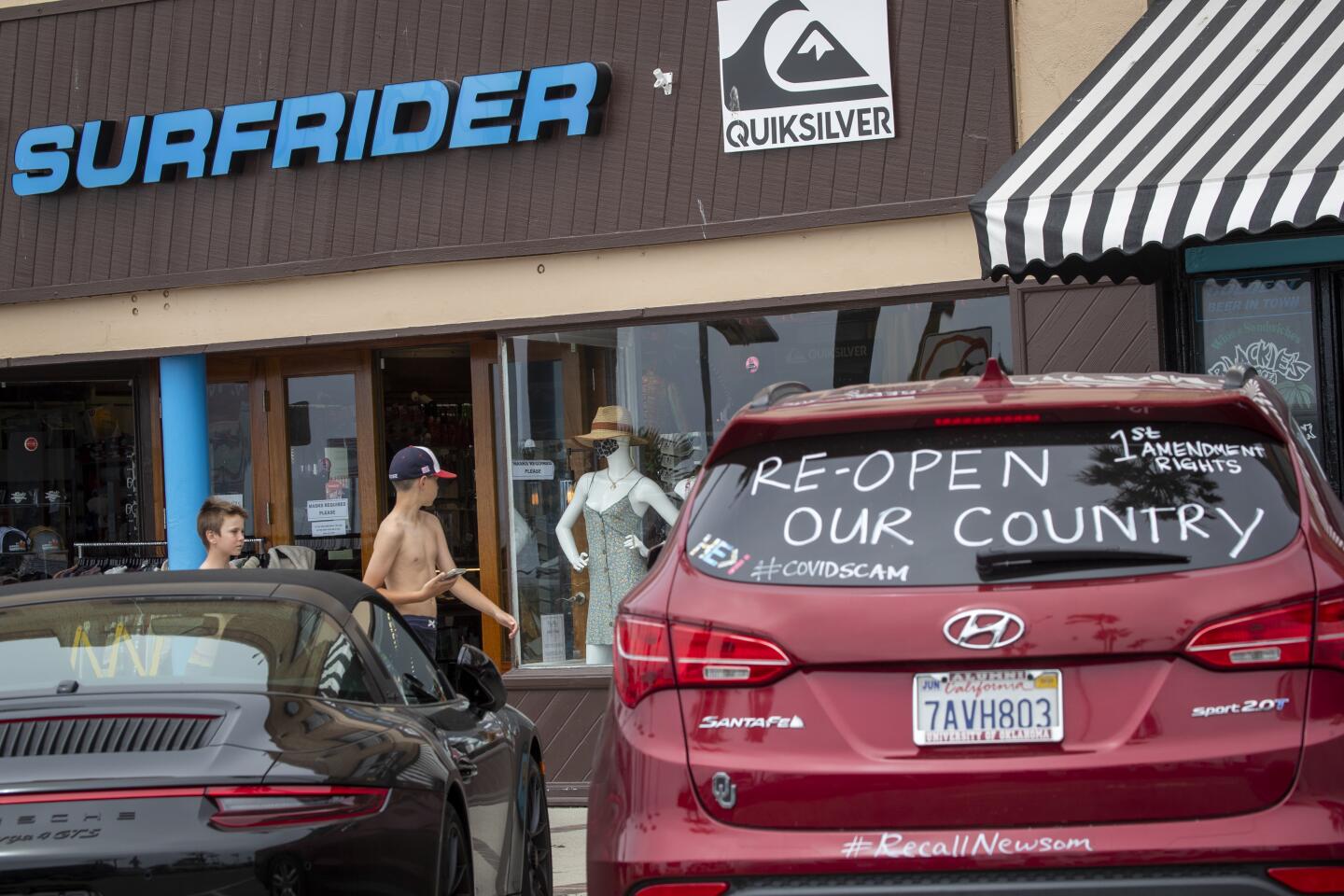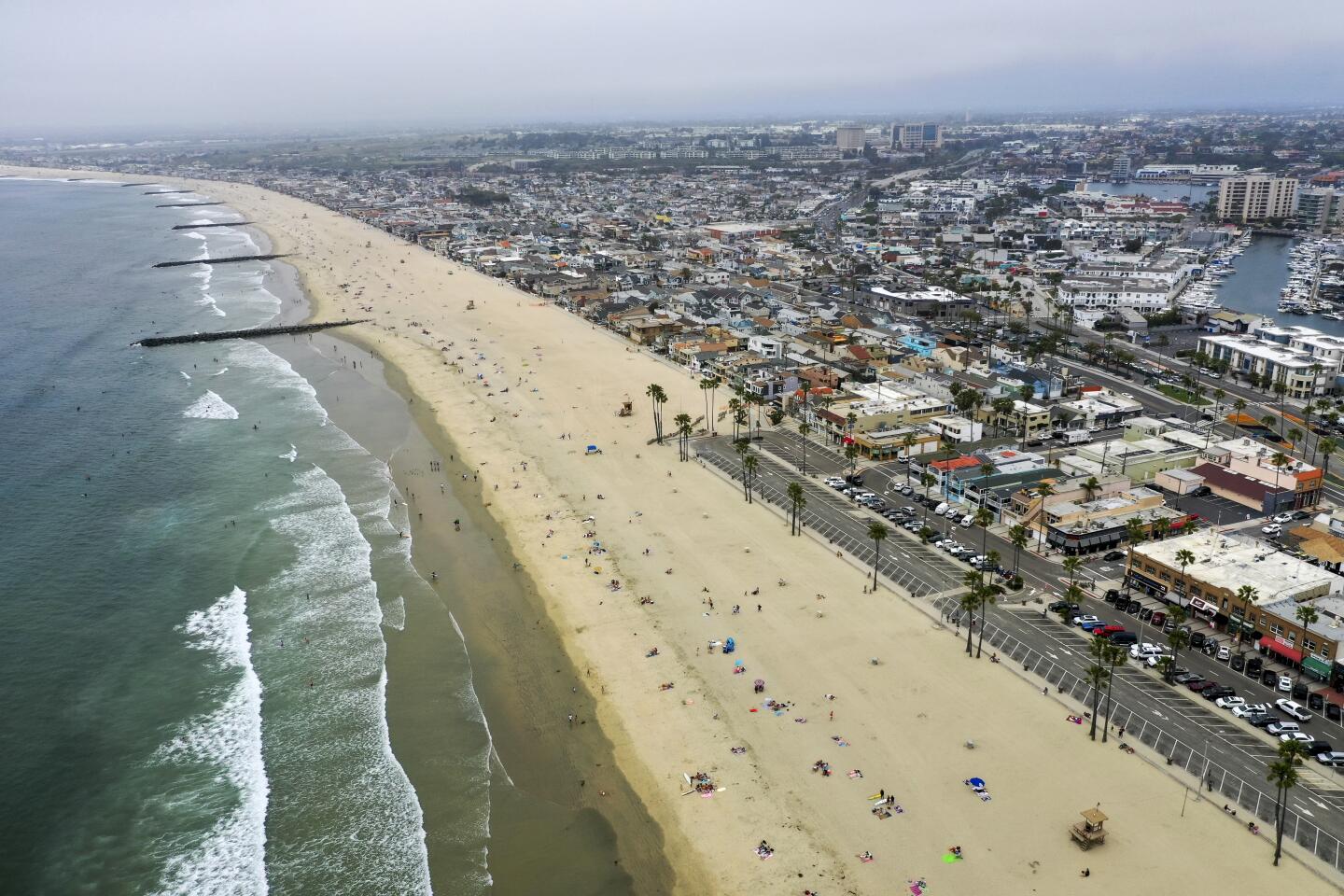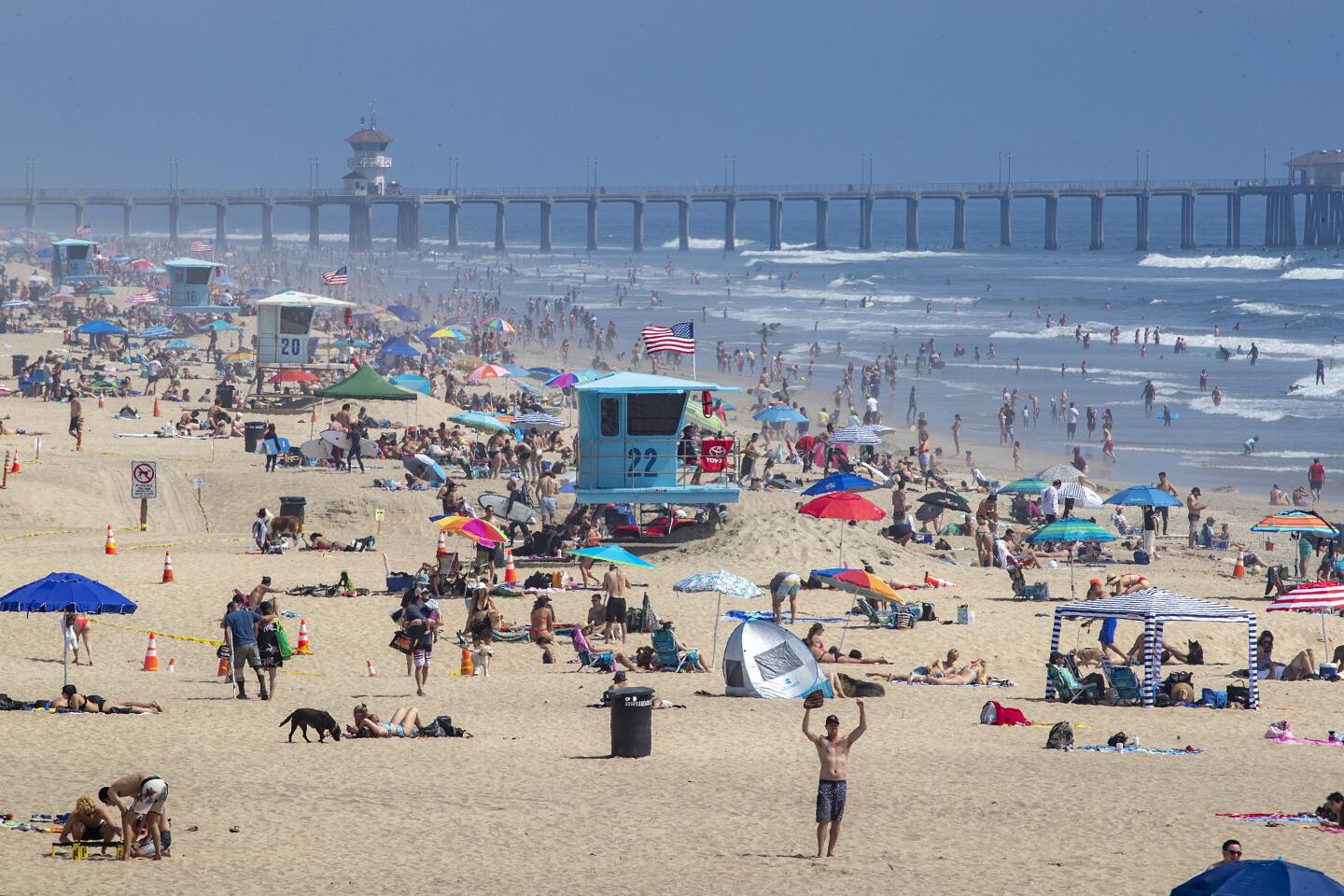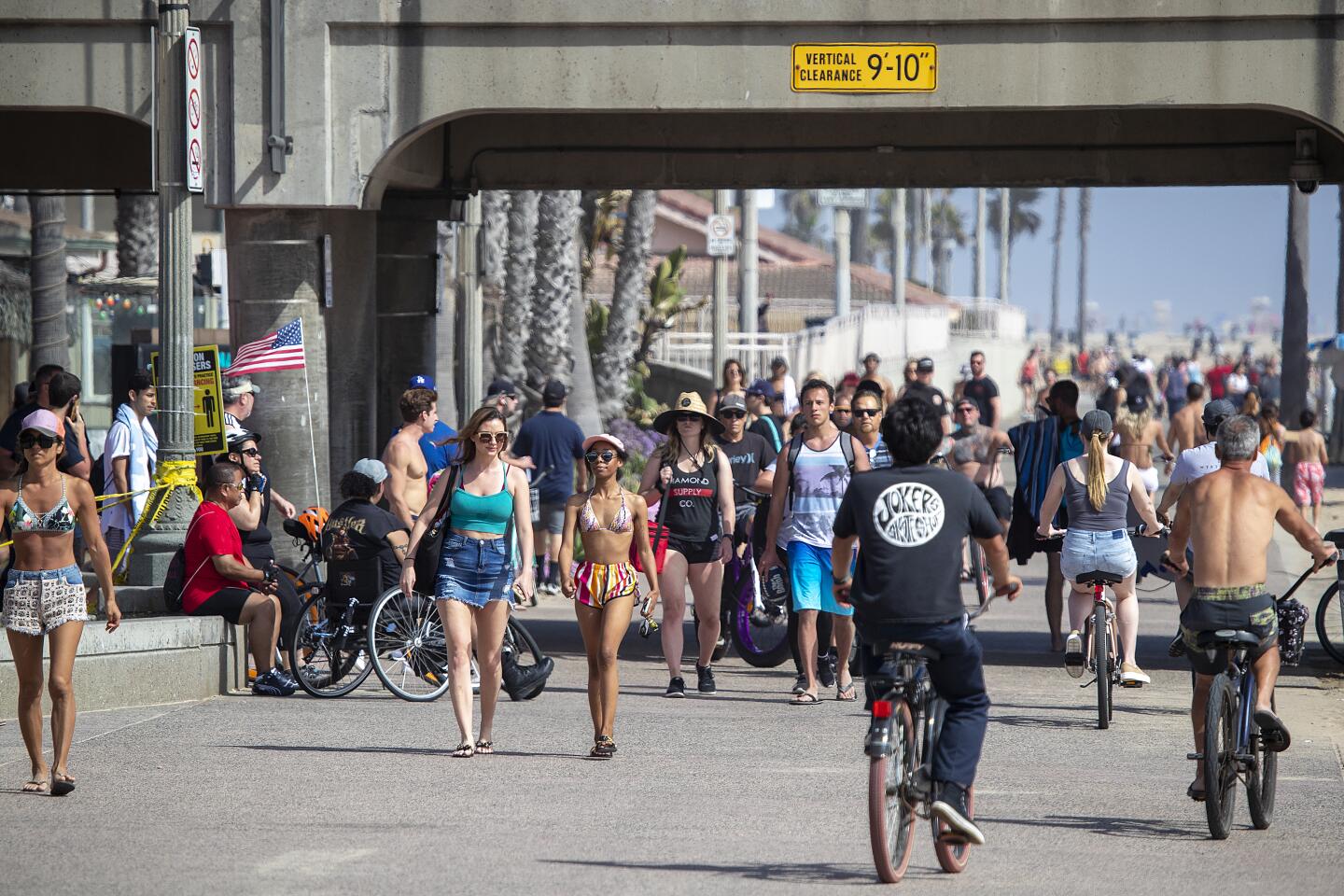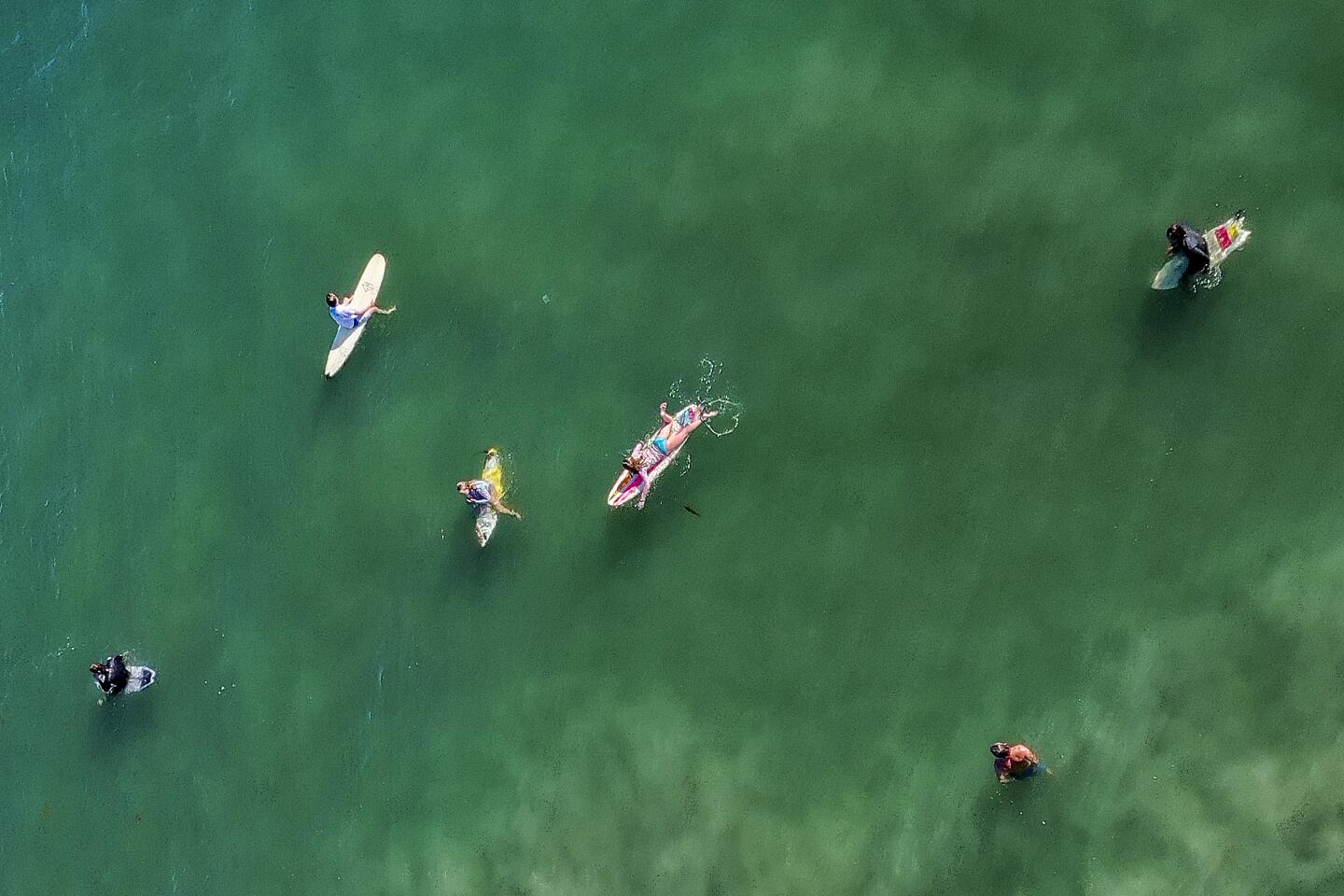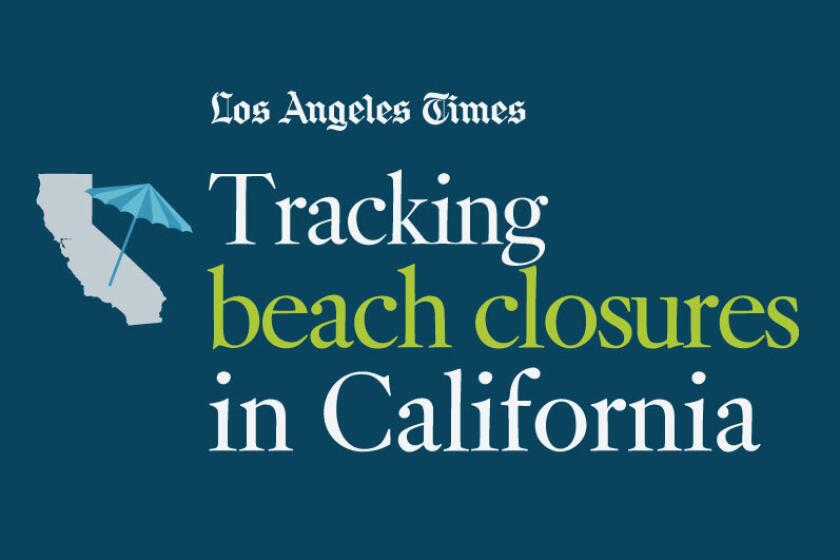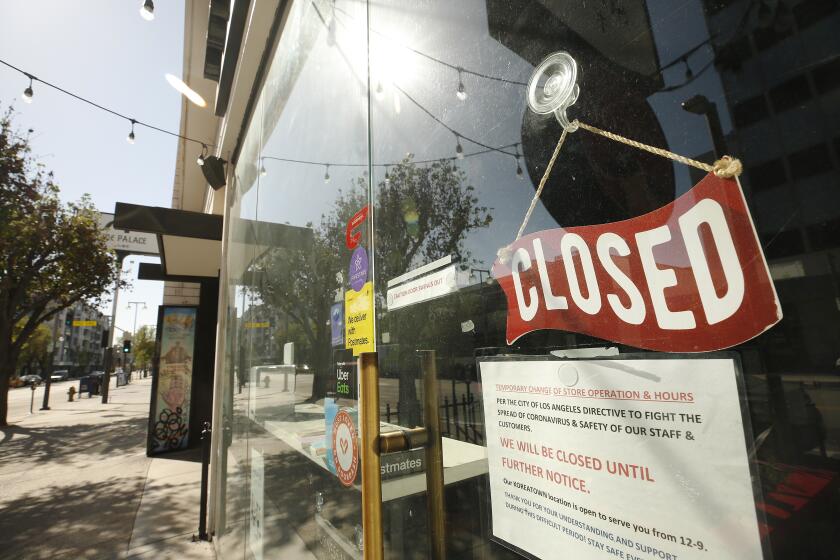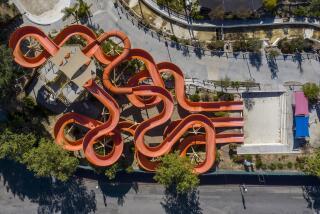Beachgoers rejoice as Orange County’s coastline reopens under deal with Newsom
- Share via
Beachgoers in Orange County rejoiced after state and local officials agreed this week on plans to reopen some areas of the coast days after Gov. Gavin Newsom shuttered all beaches in an effort to slow the spread of the coronavirus.
Dana Point, Huntington Beach, Laguna Beach, San Clemente and Seal Beach submitted plans to Sacramento allowing the public to access the coastline for active recreation only. The plans, approved early this week, include a range of measures to avoid overcrowding and allow safe physical distancing, according to the California Natural Resources Agency.
On Wednesday, Newport Beach became the last coastal city in Orange County to get approval from the state to reopen beaches. The city’s coastline has reopened for activities including walking, running, bicycle riding, swimming, surfing and other ocean activities.
“The City is very pleased to reopen our beaches for the physical and mental well-being of our residents,” Mayor Will O’Neill said in a prepared statement. “While the active recreation model was not the preferred choice by the City Council after discussions with our public safety personnel, we are confident that city staff will manage the beaches effectively under the approved plan.”
In Huntington Beach, Eric Sundquist, 45, had come from Redondo Beach to surf Tuesday. He’d been surfing there before the restrictions were loosened but said he hadn’t faced any opposition, although he was aware of surfers being ushered out of the water over the weekend.
“I just kind of travel the coastline to surf, but I love Huntington,” Sundquist said. “It’s miles of great surf. It’s Surf City USA, so I come here regardless of the situation. Luckily, they’ve been the only people that have treated it with some common sense, to be quite honest with you.”
Under Huntington Beach’s plan, people are now permitted to use the beach from 5 a.m. to 10 p.m. with the stipulation that they remain active. Sunbathing is not allowed. Parking meters along Pacific Coast Highway and the beach’s bike path are available for use, but the pier and the city’s beach parking lot will remain closed.
“We’re delighted to be reopening our beaches for active recreation, which will allow our community to once again enjoy the recreational and mental health benefits from spending time in the Pacific Ocean,” Huntington Beach Mayor Lyn Semeta said in a statement. “The new active recreation rules that we’re instituting will allow for continued beach access in a manner that emphasizes the need to practice safe social distancing.”
Seal Beach’s coastline will be open — beginning Monday — for limited hours Monday through Thursday with the requirement that visitors remain active while on the sand.
Officials in Dana Point say their beaches are open for walking, running and recreational uses such as swimming and surfing. No gatherings will be permitted, but the public can still access the city’s tide pools.
Visitors are permitted to use Laguna Beach’s sandy stretches for active purposes from 6 to 10 a.m. weekdays.
Under San Clemente’s plan, the city is now allowing active use of the beach but is keeping restrooms and parking lots closed.
Huntington Beach spokesman Eric McCoy said the beaches could be further opened in the coming days and weeks, depending on Newsom’s reopening orders. The governor has said that Phase 2 of reopening California could begin Friday, with some retail, manufacturing and logistics businesses.
“As he makes those changes,” McCoy said, “we’ll be following up as well.”
It’s unclear how quickly L.A. will reopen. But it will likely be slower than other areas.
George Roudanez, 78, of Corona del Mar was out for a walk with his wife, Linda, in Huntington Beach on Tuesday. The couple has enjoyed some of the relaxed restrictions of the stay-at-home order of late, playing tennis at Racquet Club of Irvine this week.
He believes people should have options to go outside and be active, as long as they remain vigilant about social distancing.
“I think the big problem when you close too many things, there’s the law of unintended consequences,” Roudanez said. “When you close too many things, you’re making people congregate in those areas where they can congregate, and that’s not a good idea. The more things that you have open, the better it is, as long as people remain vigilant and they observe their [spacing] and they stay apart.”
More to Read
Sign up for Essential California
The most important California stories and recommendations in your inbox every morning.
You may occasionally receive promotional content from the Los Angeles Times.
